- Autissier, Isabelle
- Azoulai, Isabelle
- Berest, Claire
- Berest, Anne & Claire
- Binebine, Mahi
- Boltanski, Christophe
- Bosc, Adrien
- Bouraoui, Nina
- Claudel, Philippe
- Decoin, Didier
- Dupont-Monod, Clara
- Durand, Jacky
- Elkaïm, Olivia
- Faye, Eric
- Fournier, Jean-Louis
- Lang, Luc
- Le Clézio, J.M.G.
- Nathan, Tobie
- Noiville, Florence
- Ruben, Emmanuel
- Sam, Anna
- Schneck, Colombe
- Sthers, Amanda

Contact us
For Brazilian, German, Greek, Portuguese, Russian, South American, Spanish, UK and US inquiries
For Asian, Dutch, Eastern European, Italian, Middle Eastern, North African, Scandinavian and Turkish inquiries
Dear publishers,
We are delighted to unveil our Backlist Fiction Rights List:
Should you be interested in receiving material, do not hesitate to contact us.
This Fall, we will attend the Frankfurt and the Sharjah book fairs, visiting clients in Italy and Finland, and holding digital appointments at your convenience. Do send us an e-mail!
We very much looking forward to reconnecting with all of you.
The Rights Team
FICTION
Suddenly
Isabelle Autissier
Novel - 2015 - 252 pages
80, 000 copies sold in France
25, 000 copies sold in Germany
Rights sold to sold to Czech Republic (Argo), Germany (Mare Verlag), Italy (Rizzoli), Japan (Shueisha), Korea (Jaeum & Moeum), Netherlands (De Bezige Bij), Romania (RAO), Russia (Phantom Press), Slovakia (Inaque), Spain (DeBolsillo), UK and Commonwealth (Pushkin Press) and US & Canada (Penguin).
Film staring Jake Gyllenhaal and Vanessa Kirby about to get in production
The gripping survival story of a couple, lost on a desolated island.
Louise is an experienced mountaineer, Ludovic a well-built young man. They’re not faint-hearted and give up their Paris apartment to set out on an adventure: travel the world together on their sailboat Jason. The island where they land to the south of the “roaring forties” captivates them with its wild beauty: snow-capped mountains, ice-filled craters, dry lakes. Only, there’s a little black cloud appearing on the horizon…
The storm hits and destroys everything, their boat disappears. They find themselves suddenly alone.
For only company they have penguins, sea lions, elephant seals and rats, and then there’s the old whaling station abandoned decades ago.
Their lovers’ adventure is turning into a nightmare. How will they survive in such a strange, alien environment? And for how long? How will they fight hunger and exhaustion?
And if they survive, how will they return to the human world? How will they describe the indescribable?

The author
Isabelle Autissier is the first woman to have sailed solo around the world in competition. She has written novels, short stories and essays, including Kerguelen (Grasset, 2006), Seule la mer s’en souviendra (Grasset, 2009 ; Livre de poche, 2011), L’amant de Patagonie (Grasset 2012, Livre de poche, 2013), and with Erik Orsenna: Salut au Grand Sud (Stock, 2006) and Passer par le Nord, (Paulsen, 2014). She is chairwoman of WWF France.
Download the material
Find out more
Click hereForgetting Klara
Isabelle Autissier
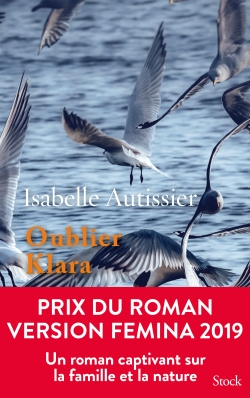
Novel - 2019 - 324 pages
Rights sold to Germany (Mare) and Italy (Rizzoli).
Klara, Rubin, Iouri: three generations in a snowbound, man-eating Russia.
Mourmansk, in the Arctic Circle. Lying on his hospital bed, Rubin knows he’s a condemned man. The only thing keeping him alive is an enigma: when he was just a child, his mother Klara, a scientific researcher for Stalin, was arrested in front of him. What became of her? This taboo has cast a shadow over his whole life and hardened his heart. A fisherman by profession, he’s happier squaring up to the toughest elements than the company of men. He has even grown increasingly unforgiving towards his own son, Iouri, treating the boy roughly on his trawler during terrifying fishing trips in the Barents Sea. Iouri’s only means of escape was his passion for birdwatching.
But when his father needs him, the now adult Iouri answers his call: don’t forget Klara! Fight history and fight silence. What is Klara’s secret? As he investigates, Iouri will uncover a vital truth that brings their lives together.
Forgetting Klara is a magnificent personal adventure, set against glimpses of a harsh yet liberating natural world.

The author
Isabelle Autissier is the first woman to have sailed solo around the world. She writes novels, short stories and essays, including Soudain, seuls which sold 95,000 copies and was translated into ten languages. She is Chairwoman of WWF France.
Download the material
Find out more
Click hereJuvenia
Nathalie Azoulai
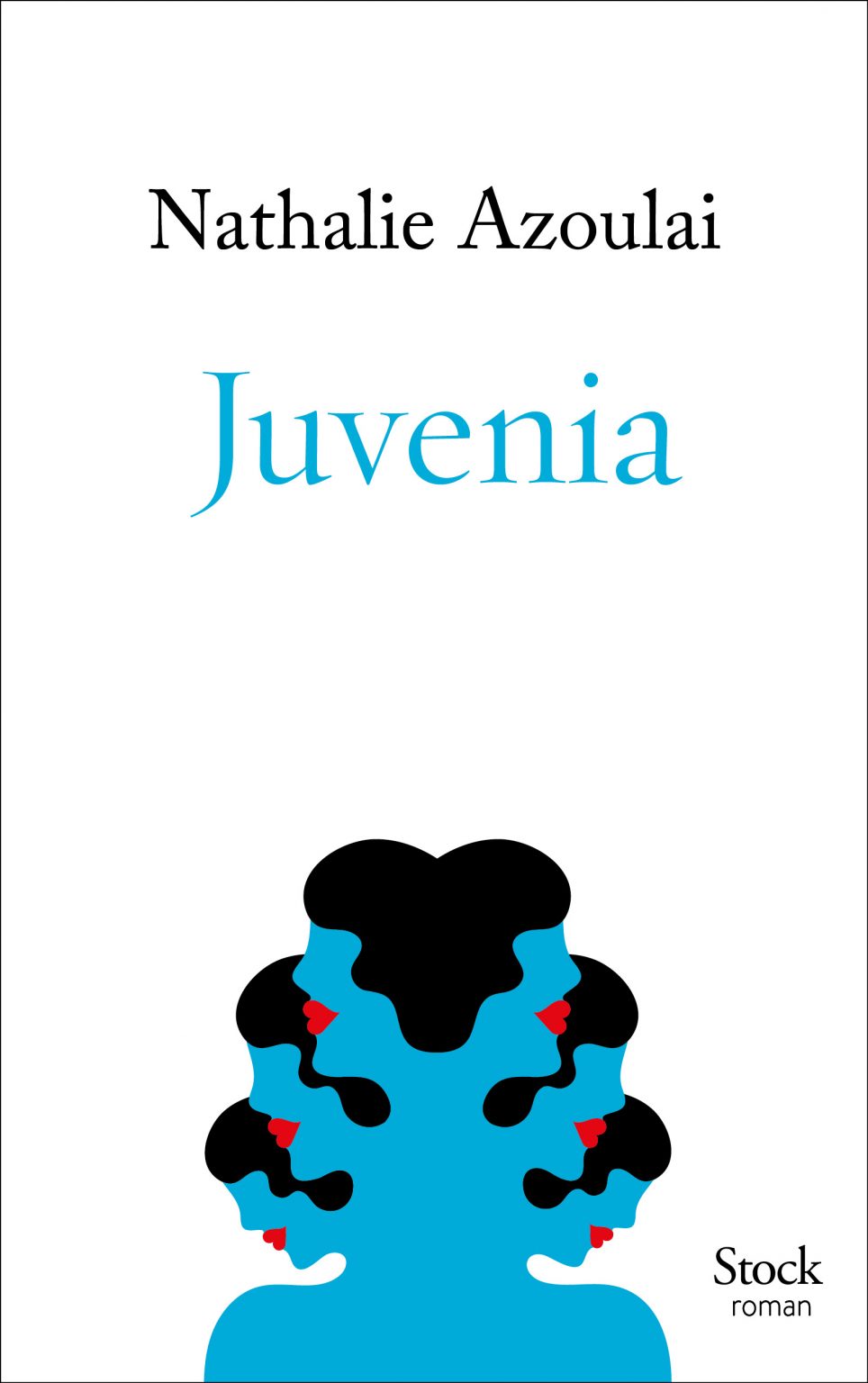
Novel - March 2020 - 128 pages
Film rights under option.
Rights sold to Spain (AdN/Alianza)
An exhilarating feminist tale full of twists and turns.
Imagine a republic called “Juvenia”. On 27th January, in the near future, a law is passed: men are now forbidden from living with women more than twenty years their junior. Anyone who fails to comply will be subject to harsh punishment.
Juvena, a beautiful aspiring actress in her thirties, finds herself breaking the law because Pierre, the father of the baby she’s carrying, is twice her age. What will she do?
Will Pierre ever be able to abide by the law?
Will Pierre’s ex-wife, fifty-three-year-old Laure, find renewed confidence in her seduction?
What if this law kindled a whole new eroticism?
Any resemblance to existing situations is purely coincidental.

The author
Nathalie Azoulai is a novelist whose highly acclaimed Titus n’aimait pas Bérénice won the 2014 Prix Médicis. Juvenia, a response to contemporary confrontations, is a welcome satire that opens up a whole new direction for her work.
Download the material
Find out more
Click hereNothing is black
Claire Berest

Novel - March 2020 - 198 pages
2020 Elle Reader’s Prize
45.000 copies sold in HC
Rights sold to Germany (Suhrkamp, preempt), Hungary (Libri Publishing, auctions), Israel (Keter), Italy (Neri Pozza, auctions, 2-book deal), Kuwait (Dar Kalemat, Arabic language rights), Lithuania (Alma Littera), the Netherlands (Orlando) and Taïwan (Sun Color Culture).
Let’s live the life of Frida Kahlo ! Viva la vida.
After her accident Frida Kahlo has lost everything: her body, her fiancé Alejandro and her bold spirit but, lying recuperating, she discovers the power of colour. And as if obsessed, she knows that her future is with Mexico’s most famous – and ugliest – muralist, the lady’s man Diego Rivera. And so she sets out to find him and gives him no choice but to love her in return. Together they will experience wild parties, success, scandal, travel and affairs. They will tear each other part and get back together. And they will paint.
How to tell the story of a legend? Claire Berest succeeds in bringing to life this mythical couple – Frida and Diego, Diego and Frida – who form a single being, a two-headed monster. The author takes us headlong into the upheavals of communist Mexico, the beginnings of American capitalism, the Europe of the surrealists and, above all, all-consuming love.

The author
Claire Berest published her first novel Mikado when she was 27. Then came two other novels (L’orchestre vide and Bellevue) and two essays (La lutte des classes, pourquoi j’ai démissionné de l’Éducation nationale, and Enfants perdus, enquête à la brigade des mineurs). She also cowrote Gabriële (60,000 copies sold) with her sister Anne Berest. She has been living and breathing the world of Frida Kahlo for 20 years. Writing this book has set her free.
Download the material
Find out more
Click here
Bellevue
Claire Berest

Novel - March 2020 - 198 pages
When Alma wakes up at four in the morning locked inside a psychiatric hospital, she has no choice but to wonder what her life means.
Two days earlier she was celebrating her thirtieth birthday. It could have been like any other birthday: a promising writer freshly launched on the literary scene, Alma was an ambitious young Parisienne and had lived with Paul for several years. Everything was going swimmingly.
But on the morning of her birthday, Alma could tell something was wrong. What was initially just a vague feeling of disgust rapidly developed into unpredictable nymphomaniac and destructive impulses: her existential angst then drove her to an incomprehensibly violent spree.
Forty-eight hours in a woman’s life? Or a nervous breakdown at thirty? Is it sane to wander barefoot in the middle of Paris, to seduce an editor who absolutely infuriates you or to sleep with strangers? What happened in the suite at the Lutetia that a chambermaid found daubed with blood? What effect does it have when you hear of your own death on television?

The author
Claire Berest published her first novel Mikado when she was 27. Then came two other novels (L’orchestre vide and Bellevue) and two essays (La lutte des classes, pourquoi j’ai démissionné de l’Éducation nationale, and Enfants perdus, enquête à la brigade des mineurs). She also cowrote Gabriële (60,000 copies sold) with her sister Anne Berest. Her novel Rien n’est noir was awarded le Grand Prix des Lectrices ELLE and was translated into 6 languages.
Download the material
Find out more
Click here
Gabriële
The saga of a surrealist muse, from Montmartre to New York
Anne & Claire Berest
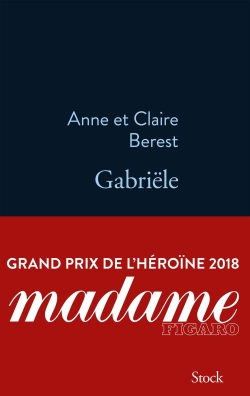
Novel - 2017 - 350 pages
70.000 copies sold in France
Sold to Italy (Neri Pozza) and Germany (Aufbau)
A “Jules et Jim” style love story set against the background of the Surrealist revolution.
September 1908. 27-year-old Gabriële Buffet – a musician, a free-spirited young woman and a feminist before her time – meets Francis Picabia, a successful young painter with a scandalous reputation. He needed his art to head in a new direction, she is prepared to break with convention: to inspire, theorise and be thought-provoking. She becomes the “woman with the erotic brain” who has men on their knees, including Marcel Duchamp and Guillaume Apollinaire. Moving from Paris to New York, Berlin, Zurich, Barcelona, Étival and Saint-Tropez, Gabriële guides the precursors of abstract art, the futurists, the Dadaists, always at the cutting edge of artistic innovation. This book takes us to the beginning of the Twentieth Century when the codes of beauty and society were reinvented.
Collaborating intimately in both content and writing, Anne and Claire Berest tell the story of their great-grandmother, Gabriële Picabia, the surrealists’ muse.

The authors
After, La Fille de son père in 2010, Anne Berest published Les Patriarches (Grasset, 2012), Sagan 1954 (Stock, 2014) and Recherche femme parfaite (Grasset, 2015). She also cowrote the bestseller How to be Parisian wherever you are, which has been translated into 35 languages. She cowrote the successful TV series Mytho on screen in October 2019. Claire Berest published her first novel, Mikado, when she was 27. It was followed by L’orchestre vide, Bellevue and Rien n’est noir (Stock 2019). They are the great-granddaughters of Gabriële Buffet-Picabia. Intrigued by the family taboo surrounding their great-grandparent, they started to research and discovered the stranger-than- fiction life of this incredible woman.
Download the material
Find out more
Click hereThe King's fool
Mahi Binebine
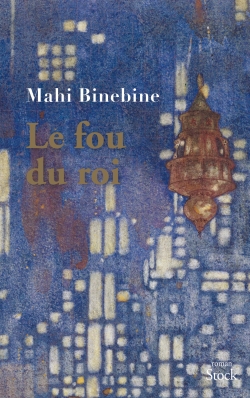
Novel - 2017 - 176 pages
Full English translation available.
Rights sold to Germany/Switzerland (Lenos), Greece (Agra), Italy (La Nave di Teseo), Lebanon (Hachette Antoine, WAL), Spain (Alfaguara), UK (MacLehose Press, WEL).
A fable inspired by Binebine’s own father’s life: he was the King of Morocco’s fool, but his eldest son was imprisoned by the regime…
Imagine the fascinating but terrifying setting of a royal palace, where luxury and fear reign supreme, and where the favourite can be punished for no reason: the narrator is King Hassan II’s storyteller. He has to keep reinventing himself, particularly when his master is dying. He knows that on one side of the door there is power, and on the other freedom. In order to stay, he has had to abandon his wife and children. Abandon his son whom the king has thrown into jail and whose absence has haunted the family for twenty years.
“Everything seemed normal, but nothing really was. With a trail of wan stars, a moonless night shrouded two silhouettes in the palace’s vast courtyard. Sidi walked slowly along the walkways lined with lanterns, orange trees, almond trees and dwarf palms. I followed close behind, my back slightly stooped, a tad obsequious as befits someone escorting the king. He struggled to stay upright with that monster eating away at his entrails and not giving him a moment’s respite. I forced myself to be amusing because it’s my job to make my master laugh.
“Everything seemed normal but nothing is when the lion is on its knees, when its claws are reduced to useless stubs, when he doesn’t frighten anyone anymore, when the dying light in his eyes inspires more pity than terror.”

The author
Mahi Binebine is Morocco’s most famous contemporary painter. He comes from a large, complicated family, and was first a maths teacher, then a painter, sculptor and a novelist with ten books to his name. Les étoiles de Sidi Moumen (Flammarion 2011) was translated into 8 languages and adapted for the big screen by Nabil Ayouch, with the title Horses of God (Awarded a prize at the Cannes Film Festival).
Download the material
Find out more
Click hereRue du pardon
Mahi Binebine
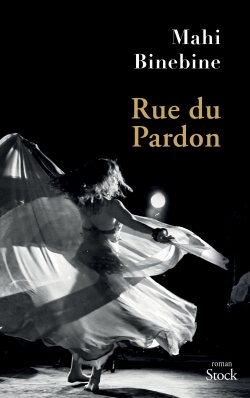
Novel - 2019 - 146 pages
Rights sold to Germany (Lenos Verlag), Greece (Agra) and Spain (castillan Alfaguara and catalan Angle).
The fate of a free woman in a country rooted in prohibitions.
Hayat grows up on rue du Pardon, a small unassuming street in Marrakech. It’s a poor neighbourhood, but one where spitefulness prospers. Hayat, who was born blonde, provokes sniggering everywhere and shame in her mother. She’s surrounded by a sordid jungle, with an evil-faced father and housewife neighbours who hiss tauntingly like snakes. All these difficulties should get the better of the child but, like a bird leaving its cage, she escapes and comes back to life thanks to Mamyta, the greatest Eastern dancer in the kingdom, a sort of geisha – singer, dancer, instructor, lover. Mamyta is both maligned and admired, and her songs are a combination of the ribald and the sacred. When she dances all sadness evaporates. With her help, Hayat learns how to turn a man’s head, to avenge hostility with charm, and to forge a life for herself.

The author
Mahi Binebine is Morocco’s most famous contemporary painter. He comes from a large, complicated family, and was first a maths teacher, then a painter, sculptor and a novelist with ten books to his name. Les étoiles de Sidi Moumen (Flammarion 2011) was translated into 8 languages and adapted for the big screen by Nabil Ayouch, with the title Horses of God (Awarded a prize at the Cannes Film Festival).
Download the material
Find out more
Click hereThe safe house
Christophe Boltanski
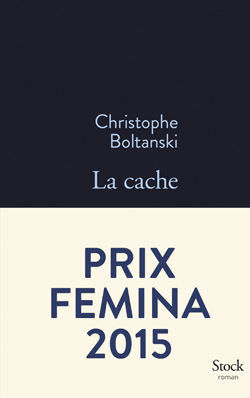
Novel - 2015 - 344 pages
Prix Femina 2015
120.000 copies sold
Full English translation available
Rights sold to China (Beijing Red Dot), Germany (Hanser), Greece (Utopia), Italy (Sellerio), Netherlands (Cossee), Poland (Oficyna Naukowa), Romania (Casa Carti de Stiinta), Spain (Siruela) and USA (University of Chicago Press, WEL rights)
What’s the trade secret of one very different family? In short: weird and wonderful. Who wouldn’t want to know? This is the family of the visual artist Christian Boltanski, one of the most famous artists in the world, of the sociologist Luc Boltanski, and of the author himself who carries in him the traces of his heritage: an obsession with privacy and a preference for confinement. First and foremost, this is the story of one man, his grandfather, a Jewish doctor who hid in his home in the heart of Paris during World War II. In this “in-between” space carved out of the apartment’s walls, you could neither stand up nor lie down. It went on for two years. He wouldn’t have survived without the iron will and leadership of his wife, “Mother-Grand”, a novelist who had had polio as a child. The Bolthole is the story of a family with a hard and eccentric sort of cheerfulness (no point going to school because the teachers are “torturers with degrees”), and a reinvented sense of freedom (the children build towns that encroach on the whole apartment, and dream up a republic crippled by endless coups).
As you venture into successive rooms of the “Rue-de-Grenelle”, you meet one character after another and the mystery of the “Bolts” is unveiled.

The author
Christophe Boltanski is a special correspondent for L’Obs. La Cache is his first novel.
Download the material
Find out more
Click hereThe stalker
Christophe Boltanski
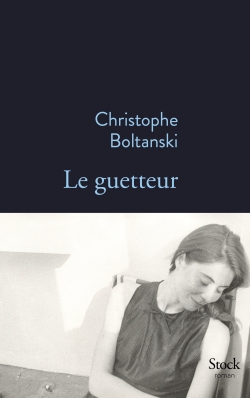
Novel - 2018 - 288 pages
Rights sold to Greece (Polis) and the Netherlands (Cossee)
When Christophe Boltanski’s mother died, he found among her papers the beginnings of detective novels featuring a terrifying stalker.
But who’s stalking who?
“Whodunnit File”. This labelled folder languishing in a drawer suddenly caught his attention: a tale of serial killers, epidemics, a butcher, twin girls and dank fog… so his mother was writing crime fiction with just her Olivetti typewriter and her dog Chips for company. And nobody knew. At least, she started these books, but never finished them, like dark daydreams left in suspense.
Now that she’s dead, the mystery around her deepens. How did this thrill-seeking woman fill the years, shut away in her Paris apartment? She was once a rebellious teenager and a militant student, why did she cut herself off from the world?
The enigma of his mother becomes an obsession for Christophe Boltanski. So he decides to follow some leads and turn the clock back. When did the spark fade from her personality, was it during her student years at the Sorbonne, in the middle of the Algerian war, when people were lead along and had to hide, when caution could tip over into paranoia?
The Stalker is a very touching novel about a woman who inventoried every cigarette she smoked, was convinced her neighbours were spying on her, and lost herself along the way. A son’s quest to reclaim his mother.

The author
The novelist and journalist Christophe Boltanski is the author of La Cache which won the 2015 prix Femina, sold 120 000 copies and was well received in the nine countries where it has been published in translation.
Download the material
Find out more
Click hereConstellation
Adrien Bosc

Novel - 2014 -198 pages
Grand Prix du roman de l’Académie française 2014
200.000 copies sold
Full English translation available.
Rights sold to Germany (Ullstein), China (People’s Literature),
Italy (Ugo Guanda), the Netherlands (Cossee), Romania (Humanitas), Russia (AST), Serbia (Geopoetika), UK (Serpent’s Tail) and USA (Other Press).
On 27th October 1949, Air France’s new Lockheed Constellation, launched by Howard Hughes, took on board thirty-seven passengers, including the boxing world champion Marcel Cerdan and the virtuoso violonist Ginette Neveu. On the 28th the plane stopped communicating with the control tower. It disappeared over the Azores with no survivors.
The question Adrien Bosc addresses in this dazzling, ambitious first novel is not so much how but why? What sequence of infinitesimal causations put end to end sent that plane into a mountain? And also, who were the passengers? We may remember Marcel Cerdan, the boxer lover of Édith Piaf who never believed he had died; we may remember the violinist Ginette Neveu, a fragment of whose violin was recovered years later; but Bosc weaves together other lives around them. From the Basque shepherd to the American entrepreneur, the inventor of the Mickey Mouse watch to the cabin crew, the author – a writer and explorer – draws a precise, hyperrealist yet poetic image of them all. He restores the humanity they lost in 1949. In his own words: “Letting the dead speak, writing their minor legends and giving forty-eight men and women, like so many constellations themselves, a life and a tale to tell.”
Do we find answers? No, more questions, “you have to keep setting off, heart thundering, in pursuit of whales”, sighs the author as he tackles the mysterious island.

The author
Adrien Bosc was born in Avignon in 1986. As founder and director of Les éditions du Sous-sol, he successfully introduced narrative non-fiction to France. He also works as an editor for Le Seuil. In 2014, his first novel, Constellation, was awarded the Grand Prix for a novel by the Académie française, as well as the “Prix de la Vocation”. It has sold nearly 200,000 copies and has been translated into eight languages.
Download the material
Find out more
Click hereThe Exiles
Adrien Bosc
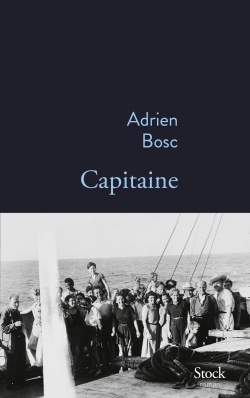
Novel - 2018 -396 pages
Rights sold in Greece (Stereoma), Italy (Ugo Guanda) and UK (Serpent’s Tail)
Climb aboard the Capitaine Paul-Lemerle, a steamboat that brought together some of the greatest French intellectuals, from Claude Lévi-Strauss to André Breton, as they fled France and Nazism.
On 24th March 1941, the Capitaine Paul Lemerle left the port of Marseille with passengers including the outcasts of Vichy France, exiled Spanish republicans, stateless people and Jews, surrealist writers and decadent artists, scholars and tradesmen, businessmen and newspaper founders – all the pariahs of an imploding Europe.
During the crossing – along the coasts of Spain and Morocco, and all the way to Martinique – people meet and get to know each other: André Breton, Claude Lévi-Strauss, Anna Seghers and so many unknown individuals, thrown together by the vagaries of distress and fate, travelling from darkness into light. Thinking they were escaping Vichy France for America, they ended up imprisoned at Fort-de-France where André Breton would serendipitously meet Aimé and Suzanne Césaire.
With considerable virtuosity, Adrien Bosc brings back to life a bygone era that also has parallels with our own. The talented author of Constellation invites us to join this fascinating crossing that has never been written about before.

The author
Adrien Bosc was born in Avignon in 1986. As founder and director of Les éditions du Sous-sol, he successfully introduced narrative non-fiction to France. He also works as an editor for Le Seuil. In 2014, his first novel, Constellation, was awarded the Grand Prix for a novel by the Académie française, as well as the “Prix de la Vocation”. It has sold nearly 200,000 copies and has been translated into eight languages.
Download the material
Find out more
Click hereNina Bouraoui

The author
Nina Bouraoui is a French novelist born in 1967, to an Algerian father and a Breton mother. Rootlessness, a nostalgia for childhood, desire, homosexuality, writing and identity are the key themes in her work. She is best known as the author of La voyeuse interdite (winner of the 1991 Prix du Livre Inter 1991), Le jour du séisme, Garçon manqué, La vie heureuse, Poupée Bella, Mes Mauvaises pensées (winner of the 2005 prix Renaudot), and Otages (winner of the 2020 Prix Anaïs Nin).
The day of the earthquake
Nina Bouraoui
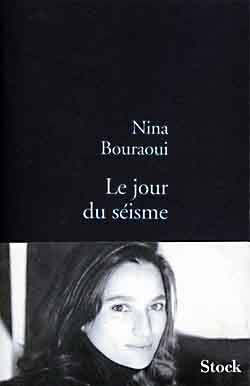
Novel - 1999 - 99 pages
“Who knows about the earthquake?
Who knows true fear?
Who knows suffering?
Who knows my destabilised land?
The earthquake immediately means exile and change. It rips through the body and forces division. It adulterates and establishes a different beginning. It changes births. It is instant and profound. I become someone else. I come from the earth that shakes. My loneliness is a well.
Who will describe the magnetism and strength, the heat and the water, the sand and the city, my affinity and my madness?
And who understands my childhood yoked to mystery, my Algerian childhood? »
Download the material
Find out more
Click hereTomboy
Nina Bouraoui
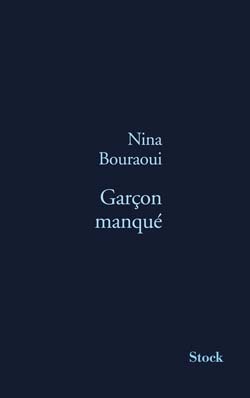
Novel - 2000 - 197 pages
Rights sold to Sweden (Elisabeth Grate Bokförlag) and the USA (University of Nebraska Press).
“I’m turning into Gusto. A boy with all the grace of a girl. Gusto for all of Algeria. Gusto against France. Gusto against my body which distresses me. Gusto against the woman who says, What a pretty little girl, what’s your name? Ahmed. Her surprise. My defiance. Her embarrassment. My victory. The whole world’s ashamed of me. I’m tarnishing childhood. It’s a perverse game. It’s child’s play. No, I don’t want to marry. No, I won’t grow my hair long. No, I won’t walk like a girl. No, I’m not French.”
Nina Bouraoui
Download the material
Find out more
Click hereBella Doll
Nina Bouraoui

Novel - 2003 - 130 pages
Rights sold to Sweden (Elisabeth Grate Bokförlag).
« Writing and love are part of the same tension, the same joy, the same loss. I am afraid of writing as I am afraid of loving. Love opens the way to writing, writing comes after love, becomes part of it or undoes it. Love does not exist on its own just as there is no writing without the other. Without desire, I cannot write. I am not innocent. I have always fallen for beauty. I write to express this rapture. This book is the story of the layers of love of which I am made up. »
Nina Bouraoui
Download the material
Find out more
Click hereMy bad thoughts
Nina Bouraoui
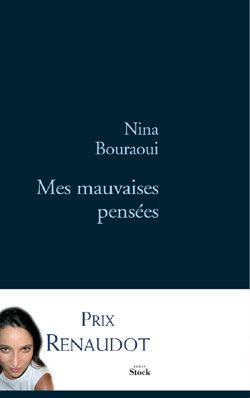
Novel - 2005 - 288 pages
Rights sold to Sweden (Elisabeth Grate Bokförlag).
« I went to Doctor C. once a week for three years. In the course of each session, I felt I was giving him a book: it was always about bonds, separations, meetings, and each time I constructed and deconstructed love’s works. Mes mauvaises pensées is the tale of this confession; a description of the work we need to put in learning to live and to love. This is not about therapy, or about myth making; it is a novel because it is a story told by someone; the story of my family, the story of the best friend, the singer, Hervé Guibert, my two countries. I never left Algeria, I was taken away from it and never said my farewells. I learnt to become in France: I think I was born twice. Mes mauvaises pensées is also the tale of a return to the country where I left something that grew in my absence and never ceased to terrify me.»
Nina Bouraoui
Download the material
Find out more
Click hereBefore men
Nina Bouraoui
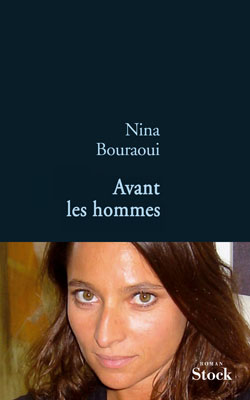
Novel - 2007 - 96 pages
Rights sold to Sweden (Elisabeth Grate Bokförlag).
It is the story of a boy who lives alone with his mother, in a small semi-detached house on a housing estate. It is summer, the dangerous season, the time of violence. This is the story of Jeremy, who is bored and obsessed with Sami. This is the story of a desertion.
There is no hope for love in this book because the body, feverish with waiting and frustration, takes all the space, fills it with void and vertigo. Youth is a savage state where everything can happen; everything can be destroyed because it all rests on one force: desire.
For this novel, written after Mes mauvaises pensées (prix Renaudot 2005), Nina Bouraoui chooses a male narrator. She constructs a fiery, sensual tale that unveils the tumult and fragility of adolescence. From one book to the next, Nina Bouraoui demonstrates a renewed capacity to enthrall us through the singularity and captivating power of her writing.
Download the material
Find out more
Click hereCall me by my name
Nina Bouraoui
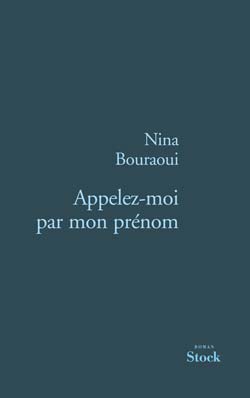
Novel - 2008 - 120 pages
Rights sold to Sweden (Elisabeth Grate Bokförlag).
It is the story of an encounter between a young female writer and an admiring reader. It recounts their exchanges, their passion, and the happiness they conquer day by day.
Appelez-moi par mon prénom is the kind of love story that was written in the past. Yet Nina Bouraoui remains true to her art and her method, and to her insightful ability to talk about her contemporary world.
Download the material
Find out more
Click hereOur kisses are goodbyes
Nina Bouraoui
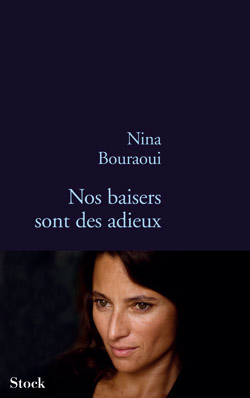
Novel - 2010 - 130 pages
Rights sold to Sweden (Elisabeth Grate Bokförlag).
“Because I know that we desire in the same way as we have been desired, I have drawn up a list of the men, women, images, feelings and works of art that have made me the person I am.
This is a book of portraits, covering many years (from 1972 to 2009). Covering many cities (Algiers, Paris, Berlin, Zurich, Abu Dhabi…). Portraits connected by an endless search for love.
It is a book about life, a book that is alive, a book that fights, a book you could also hear and whose intimate geography you could feel in relief, a geography of emotions.
I wanted to reconstruct what memory preserves. What makes up who we are or who we are not.
Enlightening an adult life with early childhood and the demons of youth. Each stage having its effect on the others.
Each stage explaining the others. As if desire were an identity. As if it were a country all of our own. A wild and limitless territory.
It is also a book about freedom. The freedom to love or to stop loving.”
Nina Bouraoui
Download the material
Find out more
Click hereWild
Nina Bouraoui
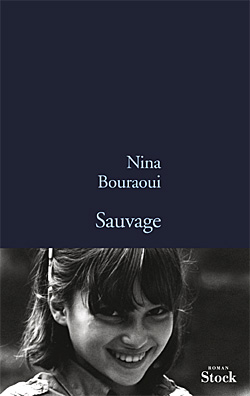
Novel - 2011 - 250 pages
Rights sold to Sweden (Elisabeth Grate Bokförlag).
“It’s difficult for me to know who I am but it’s easy to understand why I write. It happened in 1979. On those Algerian nights when my dreams were no longer the dreams of a child. It happened while I was waiting for a love who would never come back. It happened as I hoped I would become someone who would find their place in the world. It happened every evening, when I watched the sun drop behind the Mitidja plains. I told myself every time that it was taking a part of me with it. Wild is an account of that year.”
Nina Bouraoui
Download the material
Find out more
Click herePhilippe Claudel

The author
Philippe Claudel is the author of Les âmes grises, which was awarded the Prix Renaudot in 2003 and which is translated into more than thirty languages, and of La petite fille de Monsieur Linh (Stock, 2005). His novel Le rapport de Brodeck was awarded the Prix Goncourt des lycéens in 2007. Illustrated with shooting stills, Petite fabrique des rêves et des réalités includes the script of Philippe Claudel’s first film, Il y a longtemps que je t’aime, out in cinemas in France on March 19 2008, starring Kristin Scott Thomas and Elsa Zylberstein.
Grey souls
Philippe Claudel
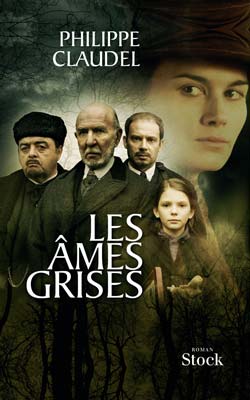
Novel - 2003 - 288 pages
Prix Renaudot 2003
ELLE Magazine’s Grand prix Littéraire des lectrices 2004
LIRE Magazine’s Best Book of the Year 2003
Feature film released
Full English text available.
Rights sold to Algeria (Sedia), Bulgaria (Prosorets), Catalonia (RBA), China (Shanghai Translation), Croatia (Profil), Czech Republic (Paseka), Denmark (Arvids), Estonia (Pegasus), Finland (Otava), Georgia (Agora), Germany (Rowohlt), Greece (Psichogios), Hungary (Joszöveg Mühely), Iceland (Bjartur), Israel (Keter), Italy (Ponte alle Grazie), Japan (Misuzu Shobo), Korea (Media 2.0), Lithuania (Vaga), Netherlands (De Bezige
Bij), Norway (Cappelens), Poland (Czytelnik), Portugal (Asa), Romania (Polirom), Russia (Eksmo), Serbia-Montenegro (Alfa-Narodna), Spain (Salamandra), Sweden (Norstedts), Taiwan (Ecus), Turkey (Dogan), UK (MacLehose Press), US (Knopf), Vietnam (Alpha-Books)
A young girl is found murdered on the frozen banks of an ice-cold stream. It is winter, 1917, during the First World War. A time of methodical slaughter. The novel never shows it, but it’s there – a hidden, monstrous presence. Whether it is little girls who are killed or thousands of men, nothing is more tragically human.
These “grey souls” are the characters of the novel, at once great and contemptible. Described with painful intensity they evolve in a society undergoing great change, with its class connivance, its cowardliness and its shame.
Download the material
Find out more
Click hereGoodbye, Monsieur Friand
Philippe Claudel
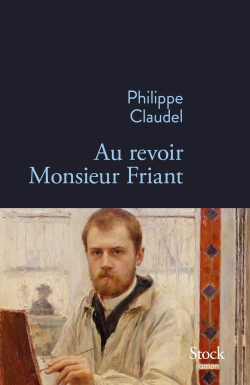
Narrative - 2016 (re-issue) - 96 pages
“I wrote Goodbye, Monsieur Friant at a time when I’d published two or three novels which, to my considerable surprise, had found a readership. The relative success I experienced started to worry me: would it have a detrimental effect on my writing? Would knowing I had readers – who might even be waiting for the next book – change the way I wrote? How could I stay true to myself and write just for me, as I always had, without worrying about pleasing or disappointing other people?
This was spring 2001. I thought of Émile Friant (1863-1932), a painter from Nancy who was nationally acclaimed in his lifetime and then forgotten after his death. He found success as a very young man and became a fashionable, honoured, distinguished painter, but his painting gradually lost all its personality. I’ve always been fascinated by his early works that I’ve admired in Nancy’s museums, and by the way his technique evolved, or rather the way his technique gradually disappeared as his fame and fortune grew and his medals and official commissions accumulated. It occurred to me that writing about him would be the best way to think about myself. This produced an intimate, fictionalised piece of writing. Although brief and tight, it features all the themes I hold dear: geography, painting, running water, the weather, war, childhood, a feeling for landscape, language and the lives of the humblest of people. This may not be significant but while I was writing it I felt fulfilled, I was on a roll. The sentences just flowed. It’s no longer available in the original edition so here it is again, and I’m delighted it is.”
Philippe Claudel
Download the material
Find out more
Click hereMr Linh's granddaughter
Philippe Claudel
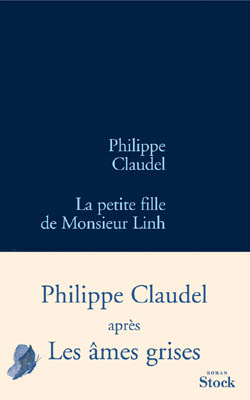
Novel- 2005 - 162 pages
Full English translation available.
Rights sold to Bulgaria (Prosorest), Cyprus (Exmo), China (Nanjing Yilin), Czech Republic (Paseka), Denmark (Arvids), Finland (Otava), Georgia (ELF), Germany (Rowohlt), Israel (Modan), Italy (Ponte Alle Grazie), Japan (Kajikasha), Poland (Czytelnik), Portugal (ASA), Serbia (Alfa-Narodna), Slovenia (Zalozba), South Korea (Media 2.0), Spain (Salamandra), Sweden (Norsteds), Taiwan (Ecus), Thailand (Sanskrit), The Netherlands (De Bezige Bij), Turkey (Dogan Egmont), U.K (Quercus) and Viet Nam (Editions des Femmes)
Mr Linh is an old man. He left his war-devastated village with only a small suitcase containing a few worn clothes, a yellowing photograph, and a handful of earth from his homeland. In his arms, he cradles a newborn baby. Sang Diû’s parents are dead, and Mr Linh has decided to take her, his granddaughter, with him. After a long boat journey, they arrive in a cold grey city crowded with hundreds of refugees.
Mr Linh has lost everything. From now on, he has to share a room with other displaced people, people who mock him for his clumsiness. In this town where everyone ignores everyone else, he nevertheless finds a friend in Mr Bark, a fat, solitary man. They do not speak the same language, yet they understand the musicality of words and the subtle language of gestures. Mr Linh is a pure heart, wounded by wars and losses, who lives only for his grand-daughter.
Philippe Claudel treats his characters with graceful respect. His book celebrates universal themes – friendship, compassion – with the elegance and transparency of the great classics of literature.
Download the material
Find out more
Click hereBrodeck's report
Philippe Claudel

Novel- 2007 - 414 pages
Prix Goncourt des Lycéens 2007
Full English translation available.
Rights sold to the Netherlands (De Bezige Bij), Germany (Kindler), Italy (Ponte alle Grazie), Portugal (Asa), Spain (Salamandra), Catalonia (RBA), UK (MacLehose Press), USA (DoubleDay/Nan A. Talese), Serbia (Laguna), China (Shanghai Translation), Korea (Media 2.0), Sweden (Norstedts), Finland (Otava), Norway (Cappelens), Denmark (Arvids), Turkey (Dogan), Japan (Misuzu Shobo), Greece (Psychogios), Israel (Modan), Poland (Czytelnik), Vietnam (Nha Xuat Ban Phu Nu), Romania (Polirom), Estonia (Pegasus), and Ecus (Taiwan).
Brodeck’s job is not about telling stories. He writes short notices on the state of the flora and trees, the seasons and the game, the snow and rain – an insignificant activity for the administration that employs him. What we want from you is not a novel” says Rudi Gott, the blacksmith, “you just have to say your bit, as you do in your reports”
Brodeck agrees to at least try. Say things the way he does in his reports then, since he does not know how to express himself otherwise. The condition, however, is that everybody, all the inhabitants of the village and neighboring hamlets, approve of this.
Brodeck is extremely conscientious and will hide nothing of what he has seen, of the truth he does not yet know. Even if this truth is bad news.
The mayor of the village is irate. “What is the use of this Brodeck? Have you not seen enough dead during the war? What looks more like a corpse than another corpse, can you tell me? Your task is to take note of all the facts, but leave out insignificant details. Remember that you will be read by people who hold important posts in the capital. I can see that you doubt it, but yes, you will be read …”
Brodeck takes the mayor’s warning into account. Not to stray, not to look for that which is not there, or not there anymore. And yet. Brodeck will do exactly the opposite.
Download the material
Find out more
Click hereThe investigation
Philippe Claudel
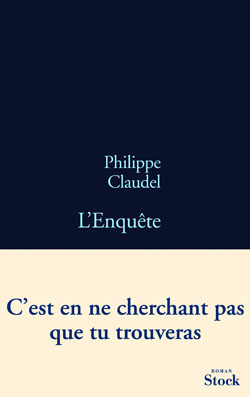
Novel- 2010 - 414 pages
Full English text available.
Rights sold to Italy (Adriano Salani), Spain (RBA Libros), Island (Bjartur), Germany (Rowohlt), Greece (Psichogios), Taïwan (Ecus), Croatia (Bozicevic), USA (Doubleday), Netherlands (De Bezige Bij), Poland (Czytelnik), Denmark (Arvids Forlag), China (Shanghai Translation), Portugal (Porto), Norway (Cappelen Damm As), Sweden (Norsteds), UK (Quercus), Czech Republic (Paseka)
“It is by not looking that you will find.” How could the Investigator in Philippe Claudel’s new book have guessed? How could he have known that this routine investigation would be the last of his life? Put in charge of explaining the causes of a wave of suicides in a company based in a town that, sadly, feels familiar to us all, the Investigator is given a task that he has to see through to the end as he always has. He gradually succumbs to signs of anxiety: the hotel he moves into plays host not only to cheerful noisy tourists but also distressed displaced people. At the company where the staff are meant to be expecting him to come and resolve his enquiry, no one is waiting for him and everyone is hostile. Has he fallen into a trap, is he prey to a real-life nightmare? He is not allowed to drink or sleep or eat, his questions are only ever answered by more questions. Even the staff keep changing, sometimes affable, sometimes threatening. As he makes new discoveries, the Investigator begins to wonder whether he himself will be the next victim of an infernal machine poised to crush him as it has others. We begin to understand that the Investigator’s powerlessness in concluding his enquiry reflects our own powerlessness in the face of a world we ourselves have built for our own destruction.
Faithful to his favourite themes, and having evoked the traumas of past wars in Les âmes grises, La petite fille de Monsieur Linh and Le rapport de Brodeck, in this painfully prophetic novel Philippe Claudel explores a war without allies or enemies that threatens us now and in the future.
Download the material
Find out more
Click herePerfumes
Philippe Claudel
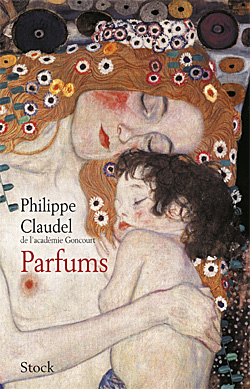
Novel- 2012 - 144 pages
Full English text available.
Rights sold to Albania (Ombra), Catalonia (RBA/Magrana), Italy (Ponte Alle Grazie), Germany (Rowohlt), Korea (Samtoh), Netherlands (De Bezige Bij), Portugal (Porto), Spain (Salamandra), Taiwan (Ecus), Turkey (Sel), UK (MacLehose Press, world English rights)
In 63 texts, ranging from “Acacia” to “Voyages”, Philippe Claudel evokes the smells of childhood and adolescence. Each evocation conjures a forgotten world from which a few traces remain: a father’s after-shave, a mother’s sun-cream, the silky hair of first girlfriends, Gauloises and Gitanes cigarettes, cinnamon in cakes and mulled wine, coal in warming fires, ink from schooldays, hay in the meadows, an uncle’s pullover… Smells that may be sweet or acrid, simple or sophisticated.
As the book progresses, a landscape appears with its fir trees, its rivers, the black earth of its fields; and a cast of characters comes back to life, modest and very real people who live and die in the place they were born. By paying tribute to them for the first time, Philippe Claudel is almost inadvertently telling his own story. He describes as he never has before his beginnings in Nancy, Dombasle the town where he was born and where he still lives, his parents and his sisters.
Download the material
Find out more
Click hereThe Toraja people's tree
Philippe Claudel
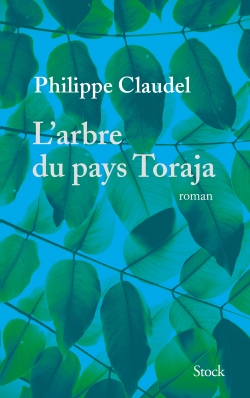
Novel- 2016 - 216 pages
Full English text available.
Rights sold to Croatia (Bozicevic), Denmark (Arvids), Italy (Ponte Alle Grazie), Germany (Thiele), Israel (Sendik), Netherlands (De Bezige Bij), Portugal (Porto), Spain (Salamandra), Sweden (Norstedts), Taïwan (Ecus) and UK (MacLehose)
“What are the living? At first glance, it seems so obvious. Separating the living from the dead. Being among the living. Being alive. But what does being alive really mean? When I breathe and walk, when I eat, or dream, or urinate, am I fully alive? What’s the highest level of living?”
Philippe Claudel’s latest novel is to some extent his Grande Bellezza. A filmmaker half way through his life loses his closest friend who is also his producer, the funny, unsettling Eugène. Drifting between two glorious women, between the past and the present, amid memories of dearly loved faces and dazzling unexpected encounters, Kundera in a hospital café, Piccoli with his explosive laugh, the narrator considers “the place death has in our lives”. And so Eugène’s tomb becomes a promise of life, and we manage to escape melancholy in order to be reconciled with ourselves.
Download the material
Find out more
Click hereInhumans
Philippe Claudel
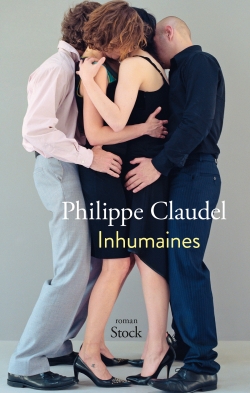
Novel- 2017 - 144 pages
Rights sold to Israel (Sendik), Netherlands (De Bezige Bij), Syria (Ninawa) and Taiwan (Ecus)
Any similarity to actual persons or events is entirely intentional! A mercilessly funny satire on contemporary society by the multi-award-winning author of Grey Souls.
A man posts naked pictures of his wife on the internet and offers her for auction. Another admits to a colleague he’s haunted by a strange affliction: his penis has disappeared…
These are just two of the anecdotes Philippe Claudel tells us because he’s “convinced there are situations when literature should turn itself into sandpaper to give our brains a good rub down: it hurts a little at first, but it tickles too.”
“In Inhumans I tried to put on a red nose, to exaggerate something real to get to the element of atrocity within it. In doing this I hoped to temper the cruelty in our society by bringing out its grotesqueness so we could laugh at it, and also perhaps contribute to improving it, although I don’t have many illusions in that respect: let’s not be too ambitious (…) Inhumans is inspired by real facts. Any similarity to actual persons or events is entirely intentional. I just exaggerated a little. Hardly at all. And my only aim is to make people laugh, even uncomfortably, at our own expense – starting with mine”.
Download the material
Find out more
Click hereThe Dog Archipelago
Philippe Claudel
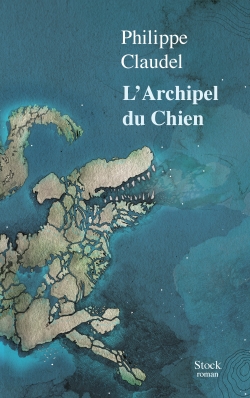
Novel- 2018 - 288 pages
85.000 copies sold in France
Prix des Lecteurs du Livre de Poche 2019
Full English translation available
Rights sold to Croatia (Bozicevic), Israel (Sendik), Italy (Ponte Alle Grazie), Lithuania (Baltos Lankos), the Netherlands (De Bezige Bij), Poland (Otwarte), Portugal (Sextante), Russia (Eksmo), Spain (Salamandra for Castillan / Angle for Catalan), Slovakia (Inaque), Taiwan (Ecus), Turkey (Yapi Kredi), the United Kingdom (Maclehose Press, UK & Commonwealth) and USA (Little, Brown and Company)
Any similarity to actual persons or events is entirely intentional! A mercilessly funny satire on contemporary society by the multi-award-winning author of Grey Souls.
A man posts naked pictures of his wife on the internet and offers her for auction. Another admits to a colleague he’s haunted by a strange affliction: his penis has disappeared…
These are just two of the anecdotes Philippe Claudel tells us because he’s “convinced there are situations when literature should turn itself into sandpaper to give our brains a good rub down: it hurts a little at first, but it tickles too.”
“In Inhumans I tried to put on a red nose, to exaggerate something real to get to the element of atrocity within it. In doing this I hoped to temper the cruelty in our society by bringing out its grotesqueness so we could laugh at it, and also perhaps contribute to improving it, although I don’t have many illusions in that respect: let’s not be too ambitious (…) Inhumans is inspired by real facts. Any similarity to actual persons or events is entirely intentional. I just exaggerated a little. Hardly at all. And my only aim is to make people laugh, even uncomfortably, at our own expense – starting with mine”.
Download the material
Find out more
Click hereEnglish girl on a bicycle
Didier Decoin
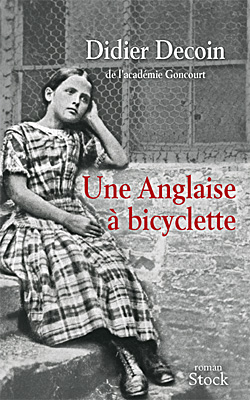
Novel- 2011 - 384 pages
Rights sold to Lithuania (Alma Littera) and Russia (Eksmo).
1890, Jayson Flannery, an English photographer who misses his homeland, takes in a three year-old girl whose mother was killed in the massacre of Native Americans in South Dakota. He will not be travelling back home alone: he decides to take Emily with him.
The two of them end up in the Yorkshire manor house where Jayson has lived all his life. Emily grows up, goes to school and learns to read. Everyone in the village has their own ideas and questions to ask about her. Did Jayson adopt her or kidnap her? A policeman makes his own enquiries, stubbornly, obstinately searching for Emily’s true origins. Jayson soon realises that if he wants to give his Native American Emily a true identity, he has no choice but to marry her. It will be an impressive wedding and will put an end to all suspicions, including the policeman’s.
Emily longed for a horse but among her wedding presents she finds a bicycle. Jayson could never have guessed how much this gift would change Emily’s fate. At first she bicycles for hours on end, then days, then whole nights. At the furthest extent of her travels, she makes an extraordinary discovery: two little girls in a far-off village claim they are visited by fairies on the banks of a river. Everyone wants to believe them, not least Emily. The girls’ father, also a photographer, asks his children for photographic proof of their claims. The girls do as they are told and bring back five astonishing images. The village where Emily grew up had its doubts about her true identity, now all of England will be divided into believers and non-believers on the subject of fairies. In an England embarking on the wild years that followed the First World War lives an ageing Sir Arthur Conan Doyle who takes comfort in a passionate obsession with spiritualism. This fantastical story about fairies comes at the perfect time in his life. He believes it utterly and completely, will make it his last great cause, and will take Emily with him on his mission to protect the little girls’ truth and their lies.
Sadly, there is always a truth but sometimes it is better left unsaid.

The author
Didier Decoin is a French screenwriter and author. He was twenty when he published his first book, Le Procès à l’amour (Le Seuil, 1966). It was followed by some twenty other titles, including Abraham de Brooklyn (Le Seuil, 1972 Prix des libraires) and John l’Enfer (Le Seuil, 1977 Prix Goncourt). He is currently Secretary General of the Académie Goncourt, has been Chairman of the Écrivains de Marine since 2007 and is a member of the Académie de Marine.
Download the material
Find out more
Click hereThe Office of Gardens and Ponds
Didier Decoin
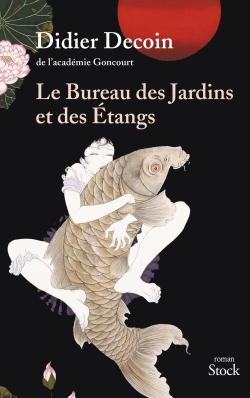
Novel- 2017 - 396 pages
100,000 copies sold in France
Prix des Lecteurs de L’Express 2017
Full English translation available
Rights sold to China (Zhongyue Media), Czech Republic (Albatros), Germany (Klett Cotta), Greece (Stereoma), Italy (Ponte Alle Grazie), Lithuania (Alma Littera), Netherlands (Meulenhoff), Poland (WAB Foksal), Romania (Humanitas), Russia (Eksmo), Serbia (Geopoetika), Spain (Alfaguara), Taiwan (Chi Ming), and the UK (MacLehose Press, WEL)
Japan in the Year 1000. Miyuki is a lowly carp fisherman’s widow, but she will travel all the way to the Emperor’s court to fulfil her unusual destiny. A sensual coming-of-age novel.
Japan, around the year 1000. Shimae, a peasant village on the banks of the river Kusagawa.
This humble village has a talent: it is home to the fisherman Katsuro, a virtuoso in the art of catching pricelessly beautiful carps and transporting them to the imperial city of Heiankyo, the city of every refinement and most importantly the site of the Department of Gardens and Ponds. When Katsuro dies, having drowned himself in the river, which of the villagers can follow in his footsteps and meet this challenge? Carrying on the weighty responsibility of wicker baskets filled with squirming, muddy carps and encountering every danger on the way to the capital? Who? If not Katsuro’s widow, the exquisite, timorous and delicate Miyuki. But will she prove capable of such a task? What does she, Miyuki the little peasant, the widow who has never left her village, know of the evils along the way, of witchery and war, magical animals, priests who may not be what they seem and tea houses that sell everything but tea? What does she know about the Empire’s capital or about Nagusa Watanabe, Director of the Office of Gardens and Ponds, crouching in wait for her in his labyrinth of traps and wonders?
After this terrifying, sensual initiatory journey, Miyuki is sullied but free. She will never be the same again. Nor will her little world be the same as before.

The author
Didier Decoin is a French screenwriter and author. He was twenty when he published his first book, Le Procès à l’amour (Le Seuil, 1966). It was followed by some twenty other titles, including Abraham de Brooklyn (Le Seuil, 1972 Prix des libraires) and John l’Enfer (Le Seuil, 1977 Prix Goncourt). He is currently Secretary General of the Académie Goncourt, has been Chairman of the Écrivains de Marine since 2007 and is a member of the Académie de Marine.
Download the material
Find out more
Click hereThe Revolt
Clara Dupont-Monod

Novel- 2018 - 256 pages
45,000 copies sold in France
Full English translation available
Audio-visual rights under option for an international series
Rights sold to Spain (Circe) and UK & Commonwealth (Quercus).
1173, The French kingdom. A remarkable queen marshals her sons to rebel against their father.
Richard Lionheart describes his mother, Eleanor of Aquitaine, a major medieval figure who was queen of France and then England. In 1173, she and three of her sons instigate a rebellion to overthrow the English king, Henry Plantagenet. How and why does she persuade her children to rise against their father? And how does a son cope with this conflict of loyalties?
This book rife with poetry and cruelty takes us to the heart of the connection between a mother and her favourite son – two individuals sustained by literature, unspoken love, honour and violence. It depicts a very accessible Middle Ages stripped of quaintness but full of emotion: modern and energising.
The extraordinary life of a powerful woman as told by her son, Richard Lionheart.

The author
Clara Dupont-Monod has a degree in ancient French. She is a journalist and has written several novels, including Le roi disait que j’étais diable, which sold over 60,000 copies. She has been haunted by Eleanor of Aquitaine for many years.
Download the material
Find out more
Click hereMonsieur Henri's secret recipes
Jacky Durand
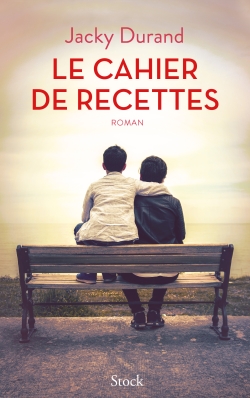
Novel- 2019 - 216 pages
30,000 copies sold in France
Full English translation available
Rights sold to Brazil (Record), Czech Republic (Host), Estonia (Täpanäev), Finland (Otava), Germany (Rowohlt/Kindler, preempt), Greece (Patakis), Hungary (Park Kiado), Iceland (Forlagid), Israel (Achuzat Bayit), Italy (Solferino), Lithuania (Alma Littera), the Netherlands (De Bezige Bij/Cargo), Romania (RAO), Russia (Arkadia), Serbia (Laguna), Slovakia (Albatros), Spain (Grijalbo), Taiwan (Chi-Ming), UK & Commonwealth (Hodder).
A tender and mouth-watering story of inheritance taking place in a French bistro.
“Monsieur Henri” is an incomparable cook, one of those chefs who can delight the taste buds with almost nothing. He runs Le Relais Fleuri, an unpretentious French bistro that still manages to give its customers everything they could wish for… on a plate. There’s one thing Henri is sure of: Le Relais will close when he goes. Under no circumstances will his son Julien take it over.
When Henri falls into a coma, Julien spends many hours holding his hand and using his memories to try to bring back to life the culinary heritage of this very secretive father. Soon Julien has a single obsession: finding the notebook of recipes that he thinks he’s seen so many times in his life, where his father wrote down his mysterious tricks… But while he searches, he comes across another secret, a family one, and understands why his father let his wife leave without a word.

The author
Jacky Durand is a culinary journalist. His sensuous, epicurean, gastronomical columns delight thousands of readers and listeners.
Download the material
Find out more
Click hereMarguerite
Jacky Durand
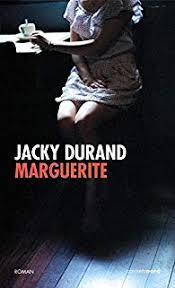
Novel- 2017 - 238 pages (originally published by Carnet Nord)
A French woman living alone during World War II has a love affair that reveals things she didn’t know about herself.
August 1939. Marguerite couldn’t be happier, she is marrying Pierre, her childhood sweetheart. A month-long honeymoon in their small house in eastern France. Then Pierre is mobilised and France is occupied. Marguerite will have to cope with loneliness and the rigours of an increasingly hostile world, but she will also discover friendship, her own strength, and swirl of emotions. As she gets to know Raymonde, the postwoman freed from social constraints, André, the young Romany she’s taken in, and Franz, a German soldier full of humanity, she gradually takes control of her life, her body and her feelings.

The author
Jacky Durand is a culinary journalist. His sensuous, epicurean, gastronomical columns delight thousands of readers and listeners.
Download the material
Find out more
Click hereThe Tailor of Rélizane
Olivia Elkaïm

Novel- 2020 - 352 pages
Shortlisted for the Prix Femina.
From the press :
“Olivia Elkaim writes about the strength of tenderness and generosity, the salvaging power of writing”
“a beautiful tribute that questions our identity and our relation to the world” Page
“Algeria, 1958: my grandfather was Jewish and a tailor by trade. He had to give up everything.”
When someone knocks at Marcel’s door in the middle of the night, he fears for his life and those of his wife and children. A bag is pulled over his head, he is bundled into a truck and driven into the desert. Will he be killed or released?
Three days later, he returns to Relizane safe and sound. His family wonder what his safe return means. What forfeit has he paid and who to? His wife Viviane, his brothers, mother and neighbours all question him. But he says nothing.
When a young Arab apprentice turns up outside his shop, Marcel realises that sooner or later he will have to leave his country. But even in France, where he makes a new life for himself, he never gives up the wild hope of returning to his shop in Relizane…
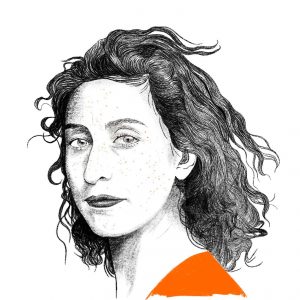
The author
Olivia Elkaim was born in 1976. She is the author of several novels, including Je suis Jeanne Hébuterne, published by Stock and translated into German and Spanish. In Le tailleur de Relizane, she explores her own family’s story. A heart-wrenching story of redemption.
Download the material
Find out more
Click hereNagasaki
Eric Faye
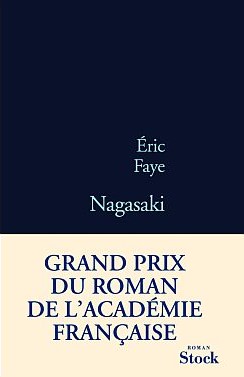
Novel- 2010 - 112 pages
Grand Prix du roman de l’Académie française 2010
Full English translation available
Rights sold to Albania (Toena), China (Shanghai Translation), Egypt (National Center for Translation), Germany (Austernbank Verlag), Spain (Salamandra), Taiwan (Acropolis), Turkey (Sel Yayincilik) and UK (Gallic Books)
Hideway for a year.
A minor news item in the Nagasaki morning daily.
It really does all start with disappearances, with things being moved.
Shimura-san lives alone in a quiet house opposite Nagasaki’s shipyards. He’s an ordinary man who curses the chanting cicadas every morning on his way to the city’s weather station, who has lunch alone and goes home early, living a retirement devoid of colour except for the bland shades of order and regularity.
For some time now, he has kept a scrupulous record of levels and quantities of food stocked in each of his kitchen cupboards. In this world where even the unpredictable can change nothing, something extraordinary has happened.
Sitting at his computer and thanks to a camera, Shimura-san eventually spots the intruder. There really is someone in his house. He’s seen her profile. He watches her, waits till he is sure. Is it a hallucination, a ghost from his previous romantic failures, a bitter and vengeful former lover? In the end he calls the police. The guest is taken away and locked in a cell.
At the time of the trial we learn that this woman who is barely older than her host found refuge in his house on her travels. He would go out without locking the door, the only area of his life left to chance. We learn that she liked to feel the sunlight filtering across the room in the afternoon and coming to rest on her skin, and the smell of clean sheets in the cupboard she used as a bedroom. This woman with no past sensed danger like an animal, detected the sound of footsteps and bolted for cover, taking shelter. She asked for nothing more than to be here, in no one’s way. She too was alone.
We discover plenty more: about the memories a place has and about memory in general, in the final letter that the “hideaway” writes to the owner of those now deserted premises.

The author
Eric Faye has had several books published by Stock: Croisière en mer des pluies (1999), Les cendres de mon avenir (2001), La durée d’une vie sans toi (2003), Mes trains de nuit (2005), Le syndicat des pauvres types (2006), L’homme sans empreintes (2008) and Nous aurons toujours Paris (2009).
Download the material
Find out more
Click hereJean-Louis Fournier

The author
Jean-Louis Fournier published a serie of personal works at Stock, most of which have been critical and public successes: Il a jamais tué personne, mon papa, Où on va papa? (prix Femina 2008), Poète et paysan, Veuf, La Servante du Seigneur (2013).
My Daddy never killed anybody
Jean-Louis Fournier

Narrative - 2008 (reprint) - 156 pages
Rights sold to Turkey (Yapi Kredi)
“My daddy was a doctor. He treated people, people who weren’t rich and who often didn’t pay him, but in exchange they offered him a drink, because my daddy liked to have a drink, or several even, and at night, when he came home, he was very tired. Sometimes, he said he would kill mummy, and me too, because I was the eldest and not his favorite. He wasn’t nasty, only slightly crazy when he had drunk a lot.
My daddy never killed anybody, he was boasting.”
-Jean-Louis Fournier-
Jean-Louis Fournier tells his childhood memories set in a small town in the countryside, surrounded by a family which isn’t like any other, with a general practitioner father who dresses as a tramp, goes on his visits wearing slippers, and looses his car in a beetroot field. A father who made him laugh, or rather cry?
Download the material
Find out more
Click hereWhere we going Daddy?
Jean-Louis Fournier

Narrative - 2008 - 156 pages
Prix Femina 2008
Rights sold to China (Shanghai 99) and to Turkey (Yapi Kredi). Previously translated in 31 languages.
Dear Mathieu, dear Thomas,
When you were small I was often tempted to offer you a book. A ‘Tintin’ for instance. We could have discussed it afterwards. I know the Tintin books well. I have read them all several times. I never did it. It was not worth it, you did not know how to read. You will never know how to read. Until the end, your presents will consist of building blocks and toy cars…
I wrote this book for them because I don’t want them to be forgotten, to survive only in the form of a picture on an invalidity card. And there is the guilt. I was never a very good father. Often, they got on my nerves. You had to have the patience of an angel, and I am no angel.
When one talks about handicapped children, one puts on a suitably concerned expression, as if talking about a catastrophe. For once, I would like to do so with a smile. They did make me laugh, albeit involuntarily, with their pranks. They gave me a number of advantages that parents of normal children did not enjoy. I never had to worry about their studies and their professional future. We never had to decide between sciences or humanities. Most of all, for all these years, I was granted a free road tax disk. Thanks to them, I was able to drive large American cars.”
– Jean-Louis Fournier
Download the material
Find out more
Click hereWidower
Jean-Louis Fournier
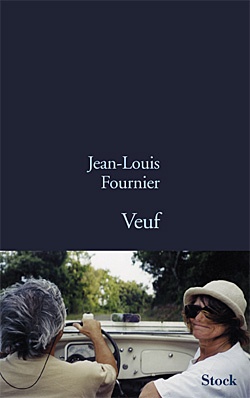
Narrative - 2011 - 160 pages
Rights sold to Turkey (Yapi Kredi).
“ I’m a widower, Sylvie died on the 12th of November, it’s so sad, this year we won’t go and shop the sales together. She left discreetly, on tiptoe, with a graceful leap and the sound that happiness makes as it leaves. Sylvie left me, but not for someone else. She fell delicately with the autumn leaves. We were watching a bird crossing the river and discussing the colour of its beak. We disagreed, I said, ‘You can’t see, you’re not wearing your glasses,’ she wouldn’t put them on out of coquettish vanity and replied, ‘I can see very well far away,’ and fell silent, forever.
I was very lucky to meet her, she carried me along at arm’s length, smiling all the way. It was a meeting between an optimistic woman and a pessimistic man, an altruistic woman and a selfish man. We were complementary, I had faults, she had qualities. She put up with me for forty years with a smile (and I wouldn’t wish myself on anyone). She didn’t like talking about herself, even less if people were saying good things. I’m going to make the most of it, now that she’s gone.”
Jean-Louis Fournier wanted to be first to die, he lost. His wife has gone, he has no one left to talk to about himself. So, as consolation or as revenge, by talking of her, he can talk about himself.
Download the material
Find out more
Click hereOn the seventh day
Luc Lang
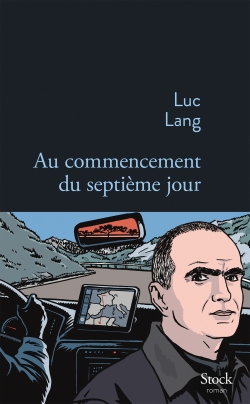
Novel - 2016 - 544 pages
Rights sold to Italy (Fazi) and Albania (Tirana Times)
On discovering the woman he loves, Camille, in a coma, Thomas is thrown into an incomprehensible tragedy – the inexplicable accident, the unexpected route, a SatNav with strange instructions. What’s been going on? He then has to tackle the hospital and its maze of corridors, his children and their grief, his boss, his co-workers and their perversities. Who wouldn’t succumb?
Through Thomas’ eyes, keeping pace with his accelerated breathing in this maelstrom, we enter into the story of a young man, for whom all was going swimmingly and who now has to struggle. He’s a father, brother and son. He is a father to Anton and Elsa whose carefree lives have abruptly ended. He is a brother to Jean, a goat farmer in the Pyrenees with a brutal and generous demeanour. He is also a brother to Pauline, who, for some unknown reason, has fled to sub-Saharan Africa. He is a son to Aurèle, who died mysteriously. And when Thomas wanders from Le Havre to Paris, from the Pyrenees to Cameroon, each journey across the landscapes illuminates a facet of his story.
A tale of a young man’s catastrophe acquires a universal character: it is as if we too are struck down by this devastating fate, by moments of hope, by anger, and by the need, despite it all, to live.
Luc Lang’s breathtaking novel, which travels through lands and secrets, is astonishing in its ambition. A great « American novel ».

The author
Luc Lang is the author of a dozen books, collections of news articles, essays on contemporary arts and literature, of which Mille six cents ventres (Strange Ways, 1998 Prix Goncourt des lycéens), La Fin des paysages (2006), Mother (2012) and L’Autoroute (2014).
Download the material
Find out more
Click hereTemptation
Luc Lang

Novel - 2019 - 360 pages
Prix Médicis 2019
Rights sold to Italy (Clichy) and Romania (Minerva). Under offer in Israel.
A family’s story of violence; part thriller, part exploration of the origins of evil.
François – a sporty fifty-something orthopaedic surgeon from Lyon – loves game hunting. He loves the fear of his prey, the danger and the defilement of it; and, though he wouldn’t admit it, he may also love the power of killing. When he is about to kill a magnificent stag, François hesitates and injures the animal in the leg. Instead of despatching it, he sedates it, hauls it into his pick-up and puts it back together, as he would a patient.
When his two children bring danger into the household, which François will take the upper hand: the surgeon or the hunter?

The author
Luc Lang is the author of a dozen books, collections of news articles, essays on contemporary arts and literature, of which Mille six cents ventres (Strange Ways, 1998 Prix Goncourt des lycéens), La Fin des paysages (2006), Mother (2012) and L’Autoroute (2014).
Download the material
Find out more
Click hereDiego & Frida
J.M.G. Le Clézio
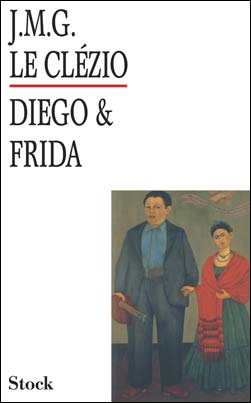
Novel - 1993 - 240 pages
Rights sold to Brazil (Distribubuidora), China (People’s Liter.), Estonia (Kunst), Germany (Carl Hanser), Greece (Kastaniotis), Italy (Il saggiatore), Korea (Bestun), Mexico (Diana), Norway (Cappelen Damm), Poland (Wydawnicza), Romania (Paralela), Russia (Inostranka), Spain (Temas de hoy), Slovaquia (Dali), The Netherlands (De Geus), Ukraine (LTD).
This is the story of an extraordinary couple: The painters Frida Kahlo and Diego Rivera.
It is the story of their suffering and their hapiness, their faith in revolution and art, their meeting with Trotski and Breton, their american adventure and their experiences in Europe. A magic book about one of the most outstandig love stories of the 20th century, written by one of the most sensitive French authors.

The author
Jean-Marie Le Clézio has written some fifty novels, essays and children’s books, and won the 2008 Nobel Prize for Literature.
Download the material
Find out more
Click hereBitna, under the Seoul Sky
J.M.G. Le Clézio
Nobel Prize in Literature 2008
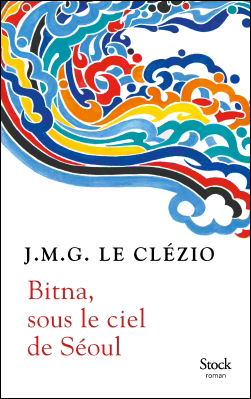
Novel - 2018 - 224 pages
Rights sold to China (Shanghai 99), India (Bingsha Shatabdi, Bengali), Italy (La nave di Teseo), Lebanon (All Prints), Spain (Lumen), Vietnam (Nha Nam), Korea and US (Seoul Selection), Russia (Eksmo), Taiwan (The Commercial press) and Turkey (Can).
An urban fable set in present-day Seoul, about the universal power of storytelling…
Bitna is eighteen and is from rural Korea. She comes to Seoul and is taken in by her aunt and her cousin who torment her. In order to escape, she accepts a job offered by a mysterious and alluring bookseller: she makes up stories for Salome, a girl paralysed by an incurable disease, and she is paid in return. One girl is battling against destitution, the other against her own mortality. Brought together, they save each other in stories that range from the everyday to the fantastical, and soon the boundary between reality and the imaginary disappears.
Bitna starts with the story of Mr Cho: a former policeman who now works as a caretaker, he breeds homing pigeons. When it comes to the season of “the wind of flowers’ desires”, he releases his pigeons Black Dragon and Diamond to take messages to his family who stayed on the other side of the border…
If Bitna stops speaking, Salome begs her to carry on with these vicarious lives – she will pay well. Bitna often slips away, she now knows she has un-hoped-for power over another person. But one day Bitna spots a shadowy figure spying on her, even hovering by the basement window to her room. An instinct for danger, or paranoia?
A poetic novel and a captivating journey, Bitna, Under the Seoul Sky transports the reader to other realities.

The author
Jean-Marie Le Clézio has written some fifty novels, essays and children’s books, and won the 2008 Nobel Prize for Literature.
Download the material
Find out more
Click hereA country like you
Tobie Nathan
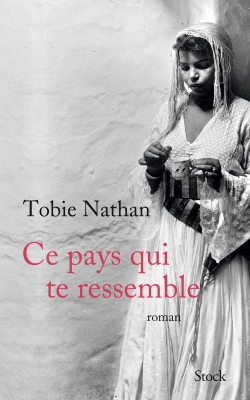
Novel - 2015 - 540 pages
Full English text available.
Rights sold to Romania (IBU), Spain (Maeva) and UK (Seagull Books)
Born in Cairo in 1948, the author has seen a whole world fall apart. Not only the Jews leaving Egypt when Gamal Abdel Nasser came to power in 1956, not only the rise of the Muslim brotherhood and an increasingly Islamised Egypt (which sadly reminds us of today’s world), not only the decadence of the last pharaoh, the likeable, ever fatter despot King Farouk who was adored by his people but unable to assert his authority; but most significantly the fall of the old world, the one descended from the rites and superstitions, the magic and curses of ancient Egypt, where the characters of this epic novel seem to come from. What a saga, from 1925 to the present day! What an adventure, from filthy backstreets to political conflict against a backdrop of world war!
Here in the Jewish ghetto, Zohar is born to a beautiful young mother and a blind father, and this child of the ghetto will become almost a prince. His foster sister Masreya, a pure Egyptian with a dancer’s body and beguiling ways, takes him to the gates of power. Here too we find the beggars and the proud, the street swindlers and the gossip-mongers, the poor and the affluent, the whole population of a shouting, rebelling, suffering and hoping Egypt in a colourful saga illuminated by a millennial sun.
Download the material
Find out more
Click hereThe Society of Fine Folks
Tobie Nathan

Novel - 2020 - 432 pages
Longlisted for the Prix Goncourt
A saga set between Cairo and post WWII Paris, imbued with magic realism.
Born into poverty in a destitute Jewish quarter of old Cairo, Zohar arrives in France with no family, no friends and no money. His only companion is the ghost of Dieter Boehm, his Nazi torturer. He leaves behind a war-torn Egypt: a land as unhealthy as its king, Faruk, who is softened by a life of luxury; a country poisoned by the rise of the Muslim Brother, by former Nazis infiltrating its army, pogroms against the Jews and the rebellion lead by the powerful Nasser.
Once in France, he shares his obsessions with Aaron, Lucien and Paulette, three people bound by their determination to break with an oppressive past. They treat their former tormentors to the same procedure: two bullets to the head, the first for revenge, the other as a signature.
This is the story that Zohar’s son François uncovers. It will help him understand the mysterious promise his father made to the “Society of Fine Folks” – a promise François decides to honour.

The author
The ethno-psychiatrist, disciple of Georges Devereux, professor of psychology and sometime diplomat Tobie Nathan is also an essayist and novelist. Amongst other works, he has published La Nouvelle Interprétation des rêves (Odile Jacob, 2011) and Ethno-roman (Grasset), winner of the 2012 Prix Femina for an essay.
Download the material
Find out more
Click hereFlorence Noiville

The author
Florence Noiville, is a journalist for Le Monde and the author of three novels, La Donation, L’Attachement and L’Illusion délirante d’être aimé. She has also written a biography of the Nobel prize-winner Isaac B. Singer (winner of the “Prix du récit biographique”). Her books are published by Stock and have been translated into several languages.
The Donation
Florence Noiville

Novel - 2007 - 140 pages
Rights sold to Italy (Garzanti)
“Some people see the story of their life unravel as they are about to die. Others experience this on an analyst’s couch. In my case, the revelation took place all of a sudden, in the office of a solicitor.”
This novel tells the story of a donation inter vivos that takes an unexpected turn. This is because the bequest, in this case, does not merely concern material things: what is really at stake is an inner patrimony, a painful family secret that has been buried deep. Hereditary illnesses of the soul do not come free of death duties…
Download the material
Find out more
Click hereAttachment
Florence Noiville
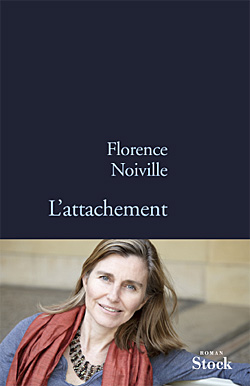
Novel - 2012 - 192 pages
Rights sold to Italy (Garzanti), Spain (Alianza) and UK (Seagull Books, WEL rights)
When Anna finds the long letter her mother wrote, her mother is already dead. Taking her secret with her. The letter is addressed to her first great love, a teacher many years older than she was, but so much less approachable. Did Marie ever send the letter? Did this man receive it? Anna makes enquiries with family and old friends, and tries to understand what the connection was between her mother and this teacher. Who was this much loved man? Is he still alive? Would finding him help Anna understand the mother who died when she herself was fourteen?
Taking this snippet of passionate love as a starting point and scrutinising it from various different points of view, both mother and daughter try to answer the same question: what is it that happens to us when we develop an attachment for someone we should never have come near?
Download the material
Find out more
Click hereThe disturbing illusion of being loved
Florence Noiville
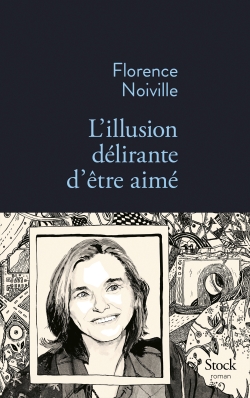
Novel - 2015 - 184 pages
Rights sold to Greece (Hestia), Italy (Garzanti), Romania (Limes), Serbia (Arhipelag) and UK (Seagull Books, WEL)
Clérambault syndrome is the disturbing, illusory conviction of being love by someone. Fascinated by the connections between literature, neuroscience and psychoanalysis, the author and journalist Florence Noiville illustrates here in her new novel this syndrome’s mechanisms and repercussions, which can lead to obsessive jealousy, even murderous insanity.
The journalist and writer Laura Wilmote realises she’s being trapped by a former childhood friend who is now a colleague: the woman dresses like her, bombards her with messages and spreads false information on the Internet. Laura gradually feels robbed of her identity and freedom, and is painfully aware she’s the only person who has noticed this inexorable relationship developing against her will. By approaching several specialists, she discovers the work of the psychiatrist Gaëtan Gatien de Clérambault.
How to escape the clutches of such a destructive relationship? How to avoid being contaminated by the madness? The Disturbing Illusion of Being Loved offers us a subtle, unsettling interplay of roles with unexpected twists.
Download the material
Find out more
Click hereConfessions of a Kleptomaniac
Florence Noiville
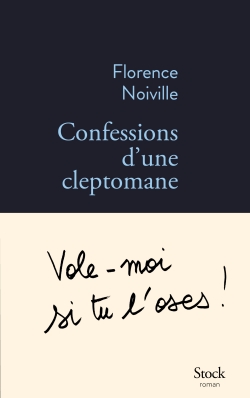
Novel - 2018 - 198 pages
Rights sold to Czech Republic (Euromedia) and Italy (Garzanti).
In the Lestrange family, the women are redheads and kleptomaniacs, from mother to daughter…
To outward appearances, Valentine de Lestrange is quite the respectable lady. A distinguished, wealthy, middle-aged woman, and the wife of a minister to boot. But a very absent minister. So much so that the bored, lonely Valentine fills the void in her daily life by succumbing to a thrilling sport: kleptomania.
The frisson of forbidden fruit, the transports of transgression: there’s no better way to cheer her up than these adrenaline rushes. To Valentine, every “klept” is a game, a challenge she sets herself: a “kleptless” day is a wasted day. Until one day when, almost without meaning to, she goes “a steal too far”. And stumbles across a document she should never have seen. That will change the course of her life.
Florence Noiville continues her exploration of the human condition through the prism of mental disorders, and gives us a wonderful portrait of a woman.
Download the material
Find out more
Click hereSabre
Emmanuel Ruben

Novel - 2020 - 400 pages
Longlisted for the Prix Jean Giono and the Prix des Deux Magots
Once upon a time there was a sabre…
When his grandfather dies, Samuel Livdweiss returns to his grandparents’ house. Everything seems normal but the sabre that had pride of place in the dining room has disappeared.
Samuel decides to investigate this childhood memory with the help of his aunt Esther, a retired bookseller. It’s not so much the sabre with its curved blade itself that fascinates him, but the history it saw, the succession of men and wars. Which ancestor did it date back to? Who was the heroic – or, perhaps lawless – impostor VLRL (Victor Livdweiss Rex Livorum) who once ruled over a Baltic archipelago?
A family myth endlessly reinvented by ageing uncles. A picaresque novel with shades of Raspe’s The Adventures of Baron Münchhausen and Calvino’s The Baron in the Trees. It is a giddying quest that takes us right back to the Napoleonic wars and invites us on an outlandish journey in pursuit of pipedreams.

The author
Born in 1980, Emmanuel Ruben is a traveller and writer, and author of ten books, including La Ligne des glaces (short-listed for the Prix Goncourt), and Sur la route du Danube. He runs the Maison Julien Gracq, a cultural centre dedicated to writers’ residencies and the arts in general.
Download the material
Find out more
Click hereCheckout: a life on the tills
Anna Sam
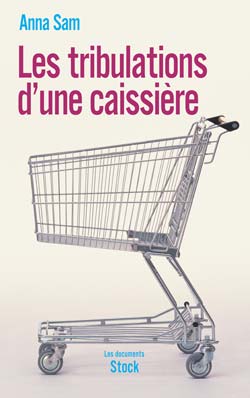
Novel - 2008 - 196 pages
100.000 copies sold
Full English translation available
Previously sold in more than 35 languages.
How does one see the world and people when one works as a supermarket cashier? What does a cashier learn about us in relation to what we have bought, what we say, the questions we asks?
To pay at the cashier is in fact a very specific event. We believe, wrongly, that the experience is a neutral one and we do not pay attention. The person sitting behind the cashier desk is, for us, a blind presence, almost a machine. We therefore show ourselves the way we are. Yet when the cashier woman is called Anna Sam, holds a literature degree and likes to watch and analyze the world around her, then we have someone who records our small lies and cowardice as well as our strange habits. The result is a book that resembles no other book.

The author
Anna Sam holds a DEA (higher diploma) in Modern French Language and Literature. She worked on the tills of a major outlet for several years. She wrote a very popular blog of her experience which went on to become a successful book, Checkout: A Life on the Tills (Stock, 2008), which sold more than 90,000 copies in France. She is also the author of Conseils d’amie à la clientèle (Stock, 2009). She has now gone over to the other side and works in training in mass marketing.
Download the material
Find out more
Click hereSummer nights in Brooklyn
Colombe Schneck
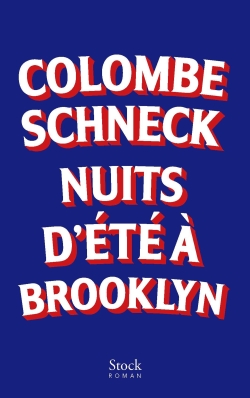
Novel - 2020 - 304 pages
Forbidden love between a young French Jewish woman and a black intellectual.
August 1991 in a residential neighbourhood in Brooklyn. A Jewish man accidentally knocks over two black children playing on the other side of the street. A seven-year-old boy is killed. The neighbourhood where these two communities struggle to live side by side soon descends into violence, cries of “Death to Jews” and “Heil Hitler” ring through the streets, a Jewish student is stabbed to death, shops are looted and cars burned.
Amidst this turmoil, Esther, a Jewish girl from Paris, arrives in New York and falls in love with a black university professor called Frederick.
How can their relationship survive when the two communities are at daggers drawn?

The author
Through her work, Colombe Schneck has combined writing with family research: her publications to date include L’Increvable Monsieur Schneck (Stock), and La Réparation (Grasset) which achieved handsome sales and was translated into several languages. Nuits d’été à Brooklyn is her first work of fiction and draws extensively on her experiences in New York at the time of the riots.
Download the material
Find out more
Click hereHoly lands
Amanda Sthers
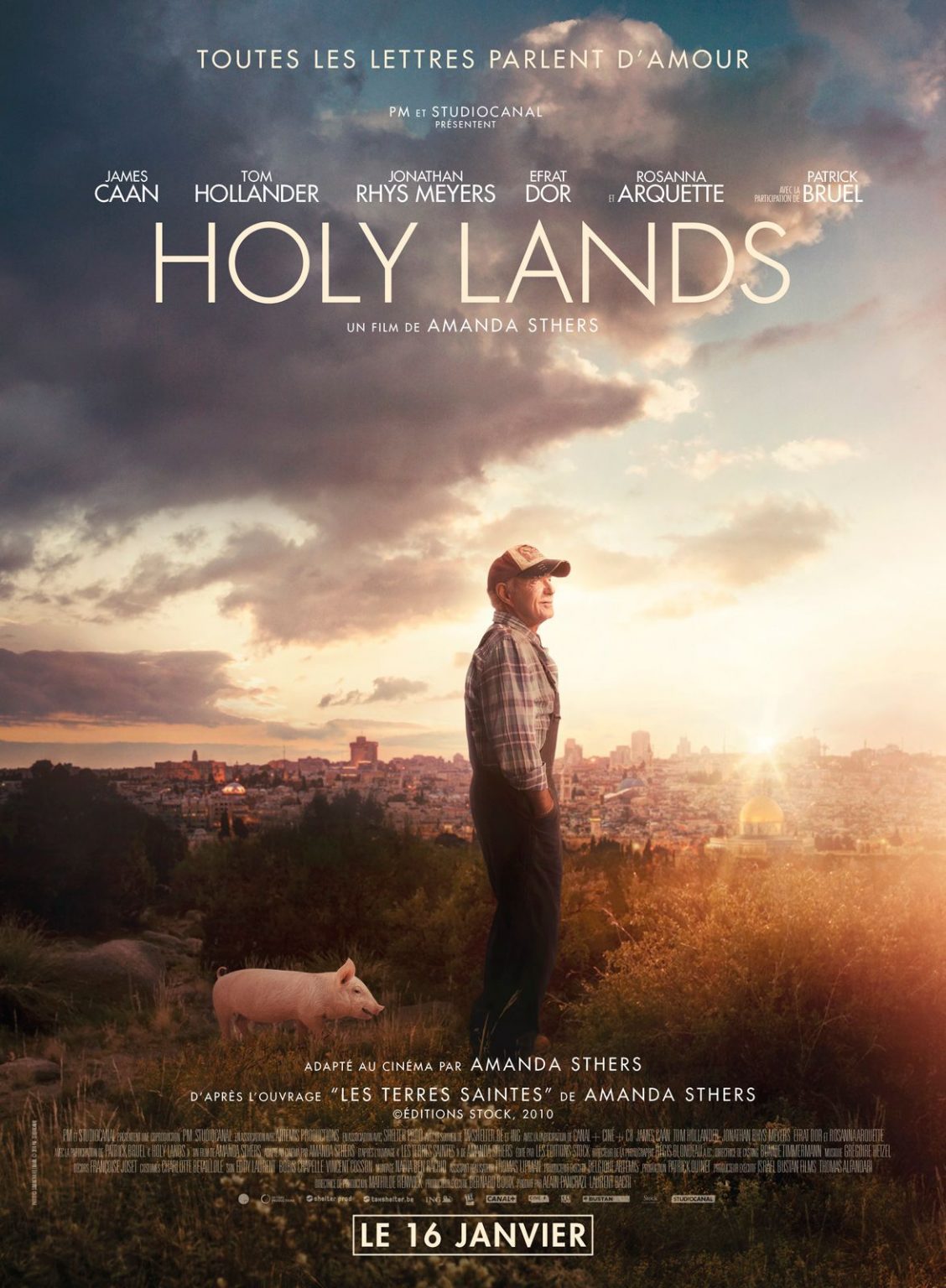
Novel - 2010 - 208 pages
Feature film starring Tom Hollander and Jonathan Rhys Meyers
Rights sold to Germany (Luchterhand), Russia (Knizhniki) and U.S. (Bloomsburry).
A brilliant epistolary novel by bestselling author and renowned filmmaker Amanda Sthers.
As droll as it is deeply moving, Holy lands chronicles a set of highly charged relationships within an estranged if wonderfully colorful and committed family of eccentrics: Harry Rosenmerck, an aging Parisian cardiologist who leaves his thriving medical practice to raise anti-terrorist pigs in Israel, David, his gay son, an earnest and successful playwright in New York whose letters to his disapproving father go long unanswered, Annabelle, Harry’s daughter, who flees New York when her heart is suddenly and unexpectedly broken, and their mother, (and Harry’s ex-wife) Monique, who ruminates about their once happy marriage even as she quietly strives to survive an aggressive lethal cancer. Holy lands captures the distress and poignancy of an adult family striving to remain connected across time, geography, and radically different perspectives on life, echoing such accomplished novels as Julia Glass’s Three Junes, Annie Lamott’s Imperfect birds, and Alice Hoffman’s At risk.
A feature film based on the novel, written and directed by Amanda (and starring James Caan, Jonathan Rhys Myers, and Rosanna Arquette) was released theatrically by Studio Canal in early 2019.

The author
Amanda Sthers writes novels, plays and screenplays. Her work has been translated into nearly a dozen languages, and she won exceptional widespread acclaim for Le Vieux Juif blonde (2006).
Download the material
Find out more
Click hereMODERN CLASSICS
Jean Cocteau

The author
Jean Cocteau (1889 – 1963) was a prolific and bafflingly versatile artist. As a graphic artist, designer, playwright, filmmaker and writer, and a close friend of many major European creators (from Picasso to Coco Chanel via Marcel Proust), he numbers among those who influenced an era. From amongst his tumultuous personal relationships and his critically acclaimed artistic collaborations, one particularly notable example was the work that brought him together with Raymond Radiguet to write Le Diable au corps.
The Human Voice
Jean Cocteau

Theatrical play - 1930, 2002 - 64 pages
Currently being adapted by Pedro Almodóvar
Rights sold to Italy (Einaudi), Japan (Kobun-Sha) and UK (Oberon Books).
A woman alone in a room on the telephone, distraught as she speaks to the lover who has left her for another woman.
Taking this sad, banal situation as his starting point, Jean Cocteau gives us a mini-tragedy in one act – a strange “monologue for two voices” made of words and silences – in which the telephone plays a crucial role.
“There was a time when people saw each other,” Cocteau wrote. “You could lose your head, forget your promises, risk the impossible, persuade the person you adored by kissing them, clinging to them. One look could change everything. But with this instrument, what’s over is over.”
First performed in 1930, this text was set to music by Francis Poulenc and first adapted for the screen by Roberto Rossellini, with Anna Magnani in the lead role. Pedro Almodovar is currently shooting a new film adapted from this cult piece.
Download the material
Find out more
Click hereThe Cockerel and the Harlequin
Jean Cocteau
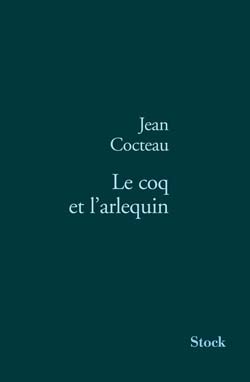
Criticism - 1919, 2009 - 144 pages
In Le coq et l’arlequin, published in 1918, Jean Cocteau develops his ideas on what the art of his time should be, with particular reference to music. The book is in fact subtitled: Notes autour de la musique (Notes on Music).
Very avant-garde and prepared to give everything a try, the artist spent a great deal of time with the Russian Ballet from 1910 onwards, and collaborated with Diaghilev and Nijinsky on Le Dieu bleu. He admired Stravinsky’s work and was outspoken against critics of The Rites of Spring whose opening in 1913 caused a scandal. He also defended Erik Satie whose originality and commitment were powerful influences on him, and with whom he collaborated on the ballet Parade.
With Parade, Satie turned this artistic form of expression into a circus, and it was with this lineage (as opposed to the heritage of Wagner and Debussy) that the musical group “Les Six” was launched by Cocteau and the music critic Henri Collet in 1920.
Download the material
Find out more
Click hereBalancing Act
Jean Cocteau

Illustrated novel - 1923, re-issued in June 2013 - 152 pp.
Rights sold Russia (AST) and UK (Peter Owen).
Jacques Forrestier is studying for his baccalauréat. His parents are forced to spend a year in the country and decide to leave him in Paris as a live-in student with Professor Berlin.
But Jacques, who has such an effect on the imposing Madame Berlin, first seduces Louise, who dances at la Scala. Then he falls in love with Germaine, who is also a performer.
Prowling around him are Nestor, Lazare and Osiris, the women’s lovers, friends and protectors. There is also Paris itself and the constant stream of bright young things who seem to be thumbing their noses at fate. And yet we all know that the party will have to end one day, and that before we choose our fate, death has already chosen us.
In his first novel, written in 1923, Jean Cocteau combines tenderness, humour and light-heartedness as if in a pastiche. But behind the flourishes and sly winks lies a more serious kind of smile.
The text is illustrated with around twenty drawings by the artist, providing amusing and poetic punctuation to the scenes in the book.
Download the material
Find out more
Click hereThe Potomak
Jean Cocteau
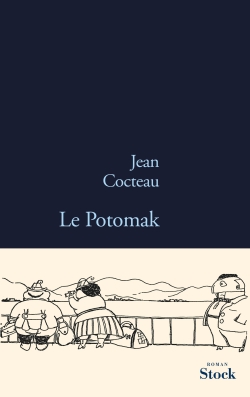
Illustrated novel - 1919, re-issued in June 2013 - 280 pp.
Rights sold to Brazil (Autentica) and Italy (Clichy).
Jean Cocteau said of this most unusual book: “My work begins with Potomak; it’s a sort of preface.” This hybrid piece – with its alternating drawings and text, and its complete freedom of form – was composed at the dawn of World War I, and the artist would always view it as his first real book. In fact, it is in this work that he pronounces the famous epigram which could have been his motto: “Ce que le public te reproche, cultive-le, c’est toi.” (“Whatever the public criticises in you is the thing you should cultivate, it’s you.”)
Based on the definitive edition established by the author in 1924, this surprising and entertaining work includes many illustrations, including the little known “ Eugènes”, and of course the “Potomak”, a monstrous inhabitant of an aquarium in Paris, a bearer of poetry and allegorical messages.
Download the material
Find out more
Click hereOpium
Jean Cocteau
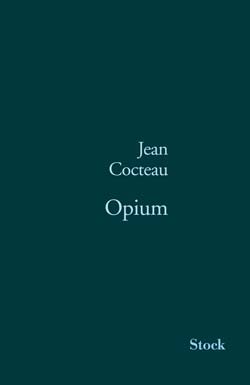
Illustrated diary - 1930, 1999 - 272 pages
Rights sold to Argentina (Nulu Bonsai), India (Bingsha Shatabdi, Bengali), Russia (AST) and UK (Peter Owen)
In 1928, five years after Raymond Radiguet’s death, while the opium addict Jean Cocteau was on a detoxification treatment at a clinic, he still drew and wrote. To him, it was all the same thing, the same creative act: “Writing, for me, is drawing, connecting up the lines in such a way that they make writing, or un-connecting them so that writing becomes drawing.”
And so, with each passing day, each moment, a book is born before our eyes, a book comprising notes, word games, a poet’s opinions. As well as commentaries about literature and writers (Proust, Raymond Roussel) there are views on film (Keaton, Chaplin, Eisenstein, Buñuel), poetry, art and the creative process itself.
The searing theme of opium returns again and again on every page. “Everything that we do in life, even loving others, we do on an express train hurtling towards death. Smoking opium means jumping off the moving train; it means worrying about something other than life and death.” With this work, Jean Cocteau joins in the great tradition of visionary poets, de Quincey, Baudelaire and especially Rimbaud.
Download the material
Find out more
Click hereOrpheus
Jean Cocteau
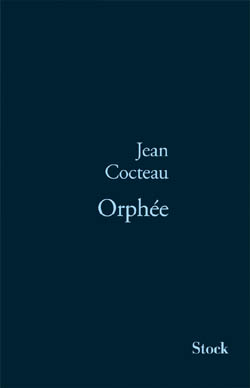
Theatrical play - 1927, 2005 - 140 pages
Rights sold to Russia (AST)
The action takes place in the villa that belongs to the poet Orpheus and his wife Eurydice. Here we meet a mysterious horse, a peculiar glazer who is none other than the angel Heurtebise, a police superintendent, a clerk of the court, death’s henchmen and death itself.
The Orpheus myth, as revisited by Jean Cocteau, takes a comic and fantastical turn to say the least: a far cry from the tragedy of antiquity, Cocteau’s play toys with anachronism, the spectacular and the downright odd thanks to extraordinary theatrical effects and choice dialogue.
This breathtakingly original play was first performed in 1926 in Paris. It was the forerunner of several Cocteau films based on the character of Orpheus: The Blood of a Poet, Orpheus (adapted from the play) and The Testament of Orpheus.
Download the material
Find out more
Click hereDrawings
Jean Cocteau

Drawings - 1923, 2013 - 288 pages
In 1923 Stock published the first book of drawings by Jean Cocteau when the poet was 34. It comprises over 100 line drawings: portraits of Raymond Radiguet, Pablo Picasso, the Countess de Noailles, scenes of everyday life, memories of the Russian ballet, allegories… Jean Cocteau proved a talented caricaturist, capturing faces and stances. As the art historian Paul Fierens said in 1959, “When you leaf through this book full of indefatigably varied surprises – in their workmanship as well as their content – what you feel is the spirit, the tone of an age in which the Russian ballet polarised people’s dreams and sublimated their tastes. Each quivering feature is captured but not frozen, and you can’t help admiring the way Cocteau rejects the artifice of perspective and modelling, of value judgements and impressionistic drawing to give us a true sense of space, and make the most of the paper’s whiteness.”
Download the material
Find out more
Click herePlaying for time
Fania Fenelon

Testimony - 1976 - 408 pages
Full English translation available.
Rights sold to Germany (DTV), Czech Republic (Garamond) and to United States (Scribner). Previously sold in 15 languages.
The striking testimony of one of the legendary « »orchestra girls » » who used music to survive the Holocaust.
In 1943, Fania Fenelon was a Paris cabaret singer, a secret member of the Resistance, and a Jew. Captured by the Nazis, she was sent to Auschwitz and later, Bergen-Belsen. With unnerving clarity and an astonishing ability to find humor where only despair should prevail, the author charts her eleven months as one of « the orchestra girls »; writes of the loves, the laughter, hatreds, jealousies, and tensions that racked this privileged group whose only hope of survival was to make music.

The author
Fania Fénelon (1908 – 1983) was a French pianist, composer and cabaret singer, who survived the Holocaust in the Women’s Orchestra of Auschwitz.
Download the material
Find out more
Click hereI Who Have Never Known Men
Jacqueline Harpman
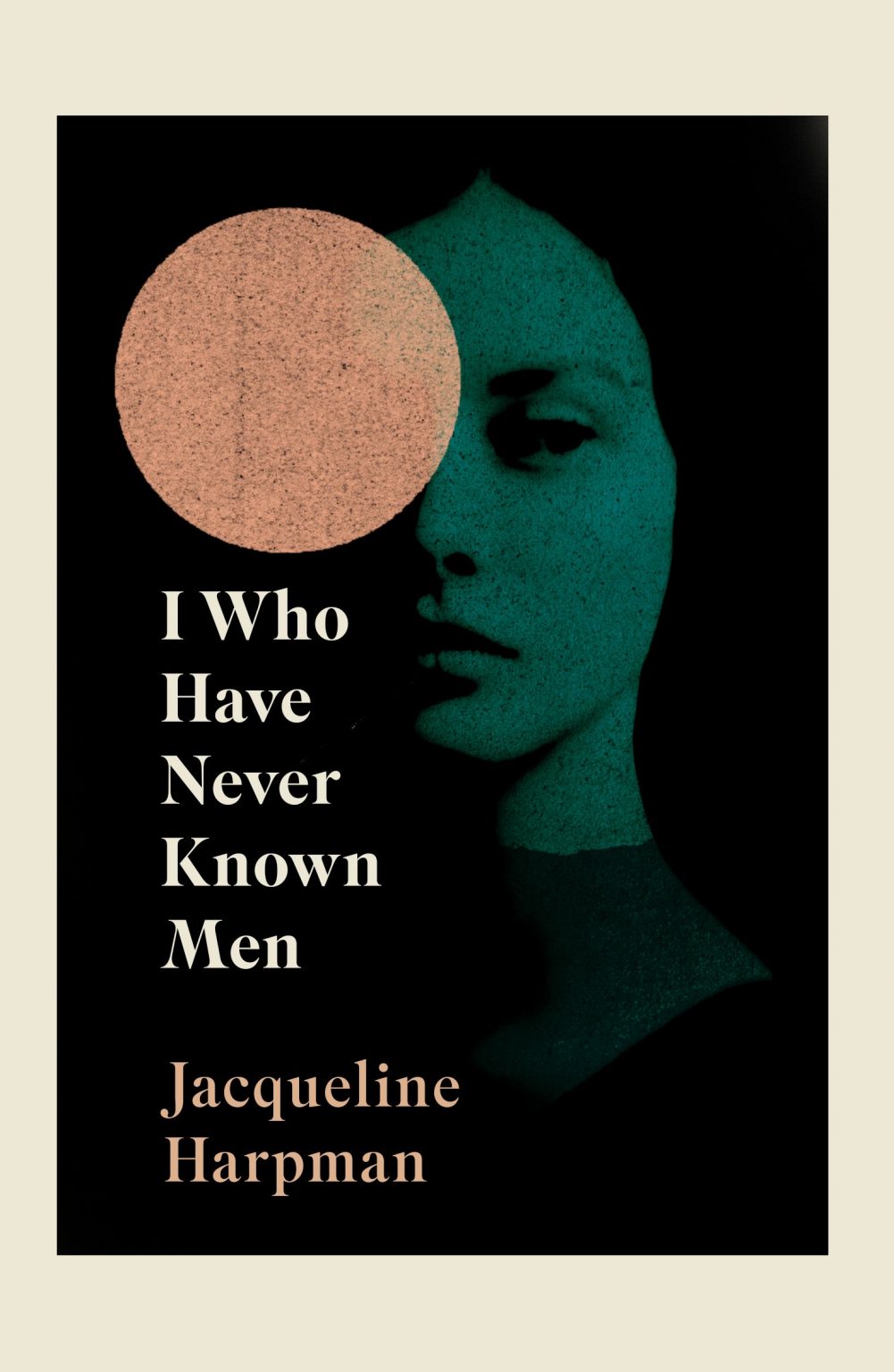
Novel - 1995, New Vintage edition 2019 - 272 pages
Full English translation available.
Rights sold sold to Brazil (Dublinense), Hungary (Metropolis Media), Italy (Blackie Edizioni), Spain (Alianza, Castilian/Periscopi, Catalan), Turkey (Can), UK (Vintage) and US (Transit books).
Forty women have been locked in a basement for years. What will happen when, one day, without explanation, they are set free?
« For a long time the days played out in exactly the same way…then I began to think, and everything changed. »
Forty women are locked in a basement, under the surveillance of stone-faced guardians who feed them. The youngest – the narrator – has never lived in the outside world. The others, although they don’t recall the circumstances which led to their imprisonment, recount their memories of a life with husbands, children, towns… Mysteriously freed from their prison and let out into a deserted world, they roam far and wide in search of other humans – and answers. Yet all they find are other basements, identical to their own, populated with dead bodies. The young narrator will prove to be the key to the group’s survival.
We have talked about Kafka, Paul Auster, and The Tartar Steppe in relation to this work, a text simultaneously nightmarish and tranquil, impassive and moving.

The author
Jacqueline Harpman was a Belgian psychoanalyst and novelist. She is the author of many works published by Stock, including La Fille démantelée, La Plage d’Ostende (Point de Mire Prize 1992) and Le bonheur dans le crime. Amongst her many works, Orlanda won the Médicis prize in 1996.
Download the material
Find out more
Click hereOstend's Beach
Jacqueline Harpman

Novel - 1991 - 320 pages
Lolita in charge.
“As soon as I saw him, I knew Léopold Wiesbek would be mine. I was eleven, he was twenty-five…”
Seized by a passion nothing could quench, Emilienne would have to wait her turn. Talented, handsome, popular with women, Léopold married into wealth to be able to devote himself to painting. The young girl will slowly weave her web, unstoppable, sacrificing a few lives in the process.

The author
Jacqueline Harpman was a Belgian psychoanalyst and novelist. She is the author of many works published by Stock, including La Fille démantelée, Moi qui n’ai pas connu les hommes and Le bonheur dans le crime. Amongst her many works, Orlanda won the Médicis prize in 1996.
Download the material
Find out more
Click hereMemory Lane
Patrick Modiano
Illustrated by Pierre Le Tan
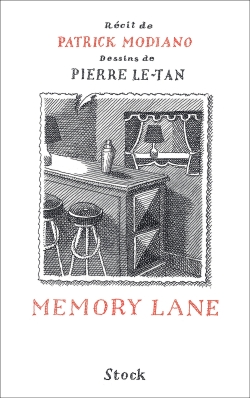
Illustrated book - 1970, new edition in 2020 - 96 pages - 23 black and white illustrations
Rights sold to China (Shanghai 99), Denmark (Batzer & Co), Korea (Esoop Publishing) and Spain (Anagrama).
Rhapsody of the lost time by the Literature Novel Prize Winner and the Legendary illustrator of the New Yorker.
Twilight memories redolent of illicit intrigues, nostalgia for a past remembered in fleeting glimpses that may well mask crises, formidable passions, fears and short-lived pleasures.
How better to illustrate Modiano’s unforgettable world than Pierre Le Tan’s illustrations?
This edition, first published in the 1970s, has been unavailable for many years. A jewel to discover and peruse.

The author
Winner of the 2014 Nobel Prize for Literature, Patrick Modiano shared in this journey by writing a preface for the book.
Pierre Le-Tan is a writer and illustrator. He has written some ten books and, most notably, has illustrated many covers of the New Yorker.
Download the material
Find out more
Click hereThe Paris of my Youth
Pierre Le Tan
Preface by Patrick Modiano
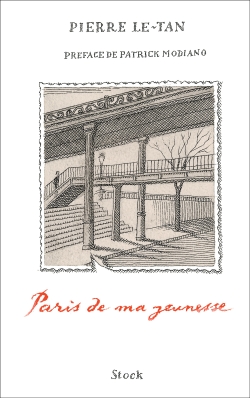
Illustrated book - 1981, new edition in 2019 - 160 pages - 35 black and white illustrations
Rights sold to Spain (Cabaret Voltaire)
Pierre Le-Tan describes and illustrates countless places – lived in or seen in passing – around Paris.
This poetic, sometimes mischievous, often melancholy book is a stroll through the Paris of days gone by. It takes us from the banks of the Seine to the place Vendôme, via the city’s famous boulevards, its hidden streets…

The author
Pierre Le-Tan is a writer and illustrator. He has written some ten books and, most notably, has illustrated many covers of the New Yorker.
Winner of the 2014 Nobel Prize for Literature, Patrick Modiano shared in this journey by writing a preface for the book.
Download the material
Find out more
Click hereA Winter's Meal
Hubert Mingarelli
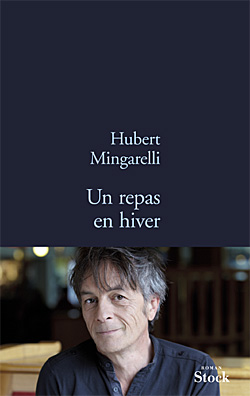
Novel - 2012 - 144 pages
Full English translation available.
Rights sold to Germany (Ars Vivendi), Israel (Am Oved), Italy (Nutrimenti), the Netherlands (Meulenhoff), Spain (Siruela, Castillan ; Sembra Llibres, catalan), Turkey (Fol Kitap), UK (Portobello Books) and USA (New Press)
In his latest novel Hubert Mingarelli sets the scene with an isolated company of German soldiers in Poland, tasked with an impossible mission. They must either watch summary executions every day, or venture into the local countryside and bring back “one of them”, in other words a Jew, whom they must then hand over to their commanders and so to certain death.
Weary of the shootings, three men set out one morning, struggling through the snow with empty stomachs and wistful thoughts of home, and no choice but to comply with a manhunt in which they do not believe.
This particular day, almost in spite of themselves, they flush out a young boy hiding in the woods. Then, keen to find food and to delay returning to camp, they head on towards an abandoned house and laborious preparations for a meal with the few provisions available to them. The men have to find wood for a fire to warm them and boil a pot of water. They’re reduced to burning the chairs they’re sitting on, as well as the door behind which they have isolated their prey. Mingarelli’s tour de force comes when he juxtaposes his characters around a table for a meal: three German soldiers, a young Jew and a passing Pole whose outspoken anti-Semitism eventually and against all expectations arouses feelings of fraternity in the soldiers towards their prisoner.
This then raises ugly questions: Should the Jew be offered food? And, once the meal has been shared, should he be taken back with them or freed?
It is here that, in his precise and measured style, Mingarelli confronts the reader with his or her own conscience and the murderous logic to which the soldiers are subjected… By calling on the fear, reason, hope, madness and humanity within each of us.

The author
Hubert Mingarelli is the author of highly regarded works, having published nearly a dozen novels and collections of short stories, including Quatre soldats (Le Seuil, winner of the 2003 Prix Médicis). He has also written novels for young adults.
Download the material
Find out more
Click hereFrançoise Sagan

The author
Françoise Sagan achieved fame at the age of nineteen with Bonjour tristesse. It was followed by plays and many novels, all of which enjoyed success in France and around the world. She wrote her own epitaph in Le Dictionnaire des auteurs: “First appeared in 1954 with a slender novel, Bonjour tristesse, which created a scandal around the world. Her death, after an enjoyable but botched life and life’s work, was a scandal only for herself.”
Write to me soon and extensively
Françoise Sagan

Exclusive unpublished correspondence - September 2021 - 128 pages
Original letterheads and drawings by the author
Letters from the Brilliant Friend…
Discover for the first time the previously unpublished correspondence of the then twenty-year-old Françoise Sagan to her dear friend Véronique Campion. Sagan has just released her first novel Bonjour tristesse and been introduced to success, the literary scene and America. She opens up about her excitement, travels and encounters through impassioned letters and cheeky telegrams written to her friend in France. This joyous and rebellious correspondence is an immersion in the making of a myth of French literature.
Dear Véronique,
You can’t imagine the energy I need to write to you. The heat is suffocating. I am holding myself up in front of this table thanks to a strong contraction of my red and peeling left arm. Ah! friendship can sometimes be hard for its disciples. When are you coming? How are your exams coming along? Call me as soon as you find out. My little Véronique, you must come, I would die of boredom if you didn’t. (…) The trip went well. The weather is nice, I am swimming, reading, sitting around. By the way, I read Bergère légère, finally, and it is very very good. I ordered Capri, petite île pronto. I am blowing an insane amount of money, it is high time you came – to help me out with that –.
Françoise
Download the material
Find out more
Click hereA fleeting Sorrow
Françoise Sagan

Novel - 1994 - 221 pages
Six months to live…
Lung cancer… the doctor is categorical. In six months, 40-year-old architect Matthieu Cazavel will be dead and buried… The height of cruelty because this September day feels like summer and Paris is looking spectacular.
Matthieu immediately decides to make sense of his tangled life. So he quite naturally turns to the women who have “populated” it: Sonia, his stupid, ravishing mistress; Hélène, the wife he left behind long ago; and Mathilde, the only woman he ever truly loved and who may be able to alter the pitiful image he suddenly has of himself…
Download the material
Find out more
Click hereOver my Shoulder
Françoise Sagan

Novel - 1998 (New publication in September 2021)
On rereading her books, Françoise Sagan traces the thread of her turbulent life.
As if her life were conflated with her books, Françoise Sagan came up with the idea of strolling through the landscape of her work. An amusing, sometimes cruel premise that took her on a melancholy ramble through “lost profiles”, “fleeting sorrows”, “unmade beds” and “scars on the soul”.
Along the way, she rediscovers periods from the past: the “charming little monster” in Cajarc, the Saint-Germain-des-Prés years, her love affairs, her houses and her travels.
Forming a journey around herself, these confidential pages shot through with explosive laughter bring us even closer to a writer we admire.
Download the material
Find out more
Click hereThe Lost Mirror
Françoise Sagan

Novel - 1996
The autopsy of a relationship.
François Rosset and Sybil Delrey are a dazzling couple. They both have successful careers in the Parisian literary and theatre scene. And they have a new joint project: adapting a play by Anton, A Czech playwright who died young. In the process, they meet Mouna Vogel, the codirector of the Théâtre de l’Opéra.
Charmed by Mouna, François succumbs to her advances and also agrees to make significant changes to Anton’s text, giving the tragic play humorous overtones that are more commercial but not true to the original.
This ultimate betrayal sounds the death knell for François and Sybil’s wonderful relationship.
Download the material
Find out more
Click hereBruises to the Soul
Françoise Sagan
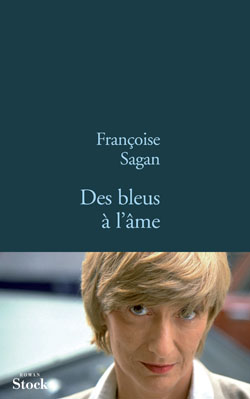
Novel - reissue in 2009 - 192 pages
Rights sold to China (Shanghai 99), Korea (Sodam & Taeil), Russia (Azbooka-Atticus).
Sébastien and Eléonore are brother and sister, bosom buddies, settle in in a furnished apartment in Paris, both of them perfectly penniless and perfectly available. Almost immediately they have people thronging round them: Nora, an American as wealthy as she is ripe in years, Bruno, a young French film star, Robert, a famous impresario…
For once Sagan’s incidental music takes on a cold, clashing personal note. She takes sides with her characters and gives us her opinion of their lives and her own. She tells us how she feels about people who criticise her books, tells us what she herself thinks of her “incidental music”, and puts herself in the picture as she rarely does elsewhere. She uses the first person to justify her choices but, in a final flourish, gives it back its novelistic status.
Download the material
Find out more
Click hereEyes of Silk
Françoise Sagan
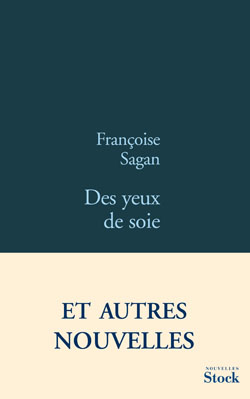
Short stories - reissue in 2009 - 208 pages
Rights sold to China (Shanghai 99), Korea (Sodam & Taeil), Russia (Azbooka-Atticus)
There are times in life when the tiniest thing can alter.
In these nineteen tales by Françoise Sagan there is a bitter-sweetness that catches at the heart. A sweetness that is all the more troubling because the characters in question are almost all fulfilled: not men and women who readily solicit pity, but the sort we envy for their apparent happiness.
It is loneliness that connects these tales, weighing on of them. A loneliness that the author catches and, with a quiet smile, pins it to the wall where we can have a good look at it. And that smile is the way of showing us that, deep down, life and people do not matter all that much… Eyes of silk that caress and reassure, but how much despair are they hiding?
Download the material
Find out more
Click hereI deny none of it
Françoise Sagan
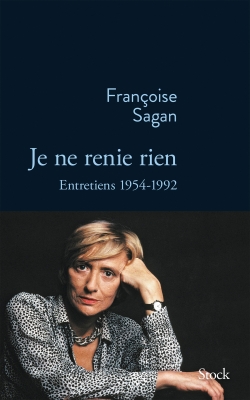
Interviews 1954-1992 - 2014 - 256 pages
Rights sold to Russia (Eksmo)
“If I had to do it all again, I would of course, but avoiding a few minor details: the car crashes, the hospital stays, the heartbreaks. But I don’t disown anything.”
Famous at nineteen, Françoise Sagan is not just a successful writer and a character who haunts Parisian nights… even though alcohol, gambling and adrenaline are part of her literary panoply.
This book of interviews is extraordinarily revealing about who Sagan was, behind the legend. It is a compilation of interviews she gave between 1955 and 1992, answering new questions, pointing out one thing, correcting another. Her views on love, friendship, money, writing, people and life itself illustrate a genuine and endearing, lucid and sincere figure.
Download the material
Find out more
Click hereThe Painted Lady
Françoise Sagan
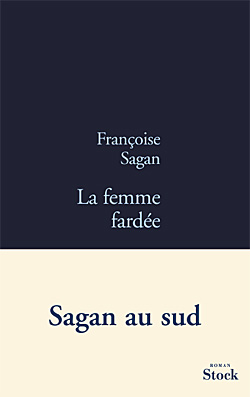
Novel - 2011 - 558 pages
Rights sold to Russia (Azbooka-Atticus)
On board the Narcissus, the cruise arranged in honour of the diva Dorriaccie is beginning to feel like a romantic drama. Secret passions are growing among the ranks of bourgeois characters and ruffling the urbane feeling of calm. There is the French starlet Olga Lamouroux, the last protégée of filmmaker Simon Béart; the wealthy Edma Baute-Lebrêche and her boring husband Armand; Julien Peyrat, the effortlessly charming auctioneer; the young Andréas Fayard, a professional gigolo; and, lastly, Eric Lethuillier, editor in chief of a “left wing” newspaper, escorted by his shy wife Clarisse. The latter, influenced by her overbearing husband, tries in vain to disguise her insecurities beneath excessive make-up. She is the “painted lady” who intrigues and touches other people in equal measures. While Eric openly appears in public with Olga, Clarisse succumbs to adulterous passion in Julien’s arms. The tension escalates, and shows of decorum – which are not enough to hide baser feelings – become as pitiful as they are burlesque. With operatic arias playing in the background, the masks fall one after the other, leaving one inevitable question: does bourgeois pride leave any room for love?
In The Painted Lady, drama simmers on every page. Although it never actually breaks, the tension is palpable and finds its only catharsis in music, which is sometimes lascivious and sensual, and often violent.
This book reverberates with Sagan’s distinctively spirited and abrasive tone. With this bitter view of the higher echelons of society, she gives us vitriolic social satire. She sheds the most incisive light on themes she holds dear: love, happiness and the fragile offhandedness that brings them to glory.
Download the material
Find out more
Click hereThe Ant and the Grasshoper
Françoise Sagan
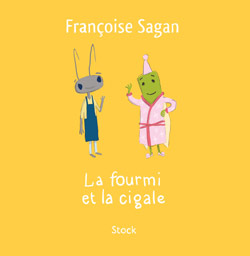
Children book - 2010 - 32 pages
This is a playful, previously unpublished prank from Françoise Sagan revisiting the famous La Fontaine fable.
It is illustrated by Jean-Baptist Drouot.
“Cicada, having sung her song
All summer long,
Found herself without a crumb
When winter winds did come.
Not a scrap was there to find
Of fly or earthworm, any kind….”
Download the material
Find out more
Click hereSalad Days
Françoise Sagan

Novel - 2011 - 198 pages
Rights sold to Russia (Azbooka-Atticus)
In the small northern town of Cardin, Guéret takes the same route home from the factory every evening, and every evening the same dog follows him back to his lodgings. This dog would be his only companion if it were not for Nicole, a young factory-worker with dreams of marriage. Nicole is attractive and considerate, but so frivolous that Guéret prefers Maria, his landlady in her fifties. Sadly, she shows him only indifference or contempt; until the day when a bloodcurdling murder is committed.
Maria loses no time in seeing her lowliest tenant as the perpetrator of the crime… and finally looks at him. Better still, she respects and admires him. Guéret, only too happy to be in favour with her at last, does nothing to disabuse her. A fool’s game begins between them. Where will this imposture take Guéret? If he comes clean, surely he will lose Maria’s love, lose everything? The only witness to the relationship who anticipates its painful end is the faithful dog.
Sagan takes on a challenge in this book. It is an unexpected story. Far from Paris with its flighty society and bourgeois women in love, the author of Bonjour Tristesse sets this book in working class circles, appropriating their hardships and grimness. No more artifice, just honest people caught up in their eccentric infatuations and ambitious dreams. And, in this unusual setting, readers take great pleasure in rediscovering what is so loved about Sagan: we keep boredom at bay as best we can, and manage to love by cheating a bit.
Download the material
Find out more
Click hereThe Unmade Bed
Françoise Sagan
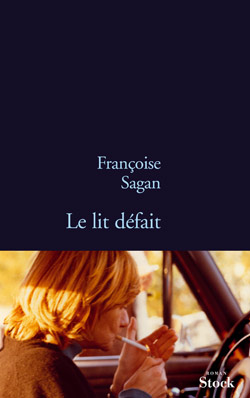
Novel - 2010 - 368 pages
Rights sold to China (Shanghai 99), Russia (Azbooka-Atticus)
When Béatrice casually left Edouard five years earlier, she quickly replaced him. It has to be said, although the boy was attractive, he was very young and had no future. But he is now a successful author, the darling of Paris society and still just as much in love with her, with Béatrice, the stunning, ferocious comedy actress. She falls straight back into his arms, amazed she still remembers him.
This beautiful couple excites considerable curiosity, mostly about how long the relationship will last. And that includes Edouard, who can tell that Béatrice is resisting him, slipping through his fingers and not really in love, but he cannot help himself loving her passionately. He is even prepared to tolerate his beloved’s infidelities.
Until the day Béatrice realizes she is in love, for the first time. Truly in love.
Feelings of love are depicted with such truth and acuity in this book that it feels as if Françoise Sagan is living the events at the same time. She writes as if she were describing the altercations of her own heart, and gives the reader one of the keys to why a relationship exists or not.
Download the material
Find out more
Click hereOne morning for a lifetime and other incidental music
Françoise Sagan

Novel - 2011 - 254 pages
Rights sold to China (Shanghai 99), Russia (Azbooka-Atticus), Vietnam (Nha Nam)
One morning for a lifetime, one Sunday morning like any other. Nicole is woken by the telephone, a strange incident, so early on a Sunday, for this young woman leading the life of a classic Sagan heroine. A girlfriend of hers tells her the world is about to end: a missile has been launched on Paris. San Francisco and Leningrad have already been wiped off the map. She has only one hour left to live. What do you do in this situation? Who do you think of? Rémi Pelletier leaves his wife and children on holiday, to spend the month of August alone in Paris. He is delighted at the prospect, at last he can watch football on television in peace. But who is going to sew back on the three buttons he has just lost? He wouldn’t want to look at mess at the office on Monday morning on the grounds that his wife is away. There is the neighbour of course, Olga, a friend of his wife’s, with a head like a bird’s, a voice like a bird’s. But you really can’t ask a virtual stranger to sew buttons on without some minimum civility, can you?
As well as Incidental Music, which in itself is wonderful, this volume brings together four other unpublished short stories: One Morning for a Lifetime, August Story, Macho and Menu. The sort of short, crisp, funny stories that Françoise Sagan sets up so well. A pure delight.
Download the material
Find out more
Click hereA still storm
Françoise Sagan
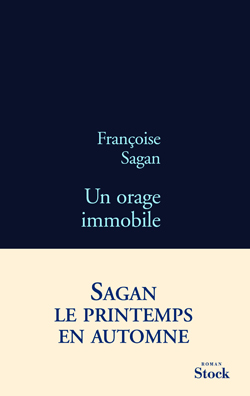
Novel - 2011 - 254 pages
Rights sold to China (Shanghai 99), Russia (Azbooka-Atticus).
In the spring of 1832, Flora, an immigrants’ daughter born, brought up, married and then devastatingly orphaned and widowed in England, arrives in Jarnac one fine day to reopen Margelasse, her family’s chateau. No one from the region has yet spotted her when Nicolas Lomont, the thirty-year-old notaire, mounts his horse and sets off for Margelasse. And so the story begins. At first it is a peaceful love story but soon comes the drama full of sound, fury and passion.
The story is narrated entirely by Nicolas, thirty years later. Old, alone, with little predisposition to literature, he is not sure what it is that moves him to pick up a notebook, and pen the words: “If a reader should one day find these pages…”, but he perseveres. Although Lomont decides several times to stop, to throw his manuscript in the fire, he is eventually caught up in the game. He will say everything. He is even surprised to find himself intoxicated with words, resuscitating with just one sentence friends who have died and the enemy who is no longer there.
Download the material
Find out more
Click hereSunlight on cold water
Françoise Sagan
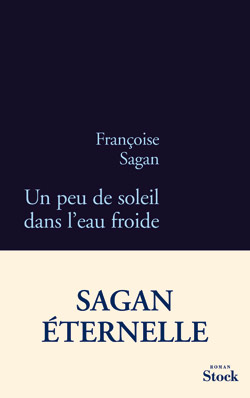
Novel - 2010 - 256 pages
Rights sold to China (Shanghai 99), Russia (Azbooka-Atticus).
Gilles is a brilliant Parisian journalist struck down by depression. He decides to leave the cynical, laughing capital to get some rest in his sister’s house in the Limousin region. That is where he meets Nathalie Sylvener, a beautiful, sincere and uncomplicated woman who immediately falls in love with him.
She drops everything, moves into his small Paris apartment and gives herself to him wholeheartedly, without cynicism, only asking that he does the same. But Gilles, who believes he too is in love, realizes that he finds this overly exclusive and intimate existence boring. Nathalie did warn him, though: she would stay with him until he asked her to leave.
Unusually for a book by Sagan, the female character is straightforward and honest, a woman with only one passion. The dialogues are pure and touching. In this simple yet complex novel, the reader recognizes the music, phrasing and elegance that sadness gives people, the light, spirited, joyful yet melancholic style so specific to Sagan. A novel about the absolute love, the unique love that each of us dreams of.
A serious, lucid novel in which Sagan explores extreme feelings and pushes her characters into their innermost secrets, with the analytical acuity of a great novelist. A true rediscovery, a true pleasure.
Un peu de soleil dans l’eau froide was adapted for the screen in 1971 by Jacques Deray and Françoise Sagan.
Download the material
Find out more
Click hereLost Profile
Françoise Sagan
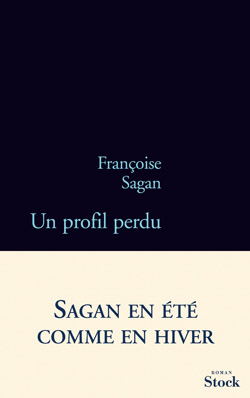
Novel - 2010 - 200 pages
Rights sold to Russia (Azbooka-Atticus).
They have come to the end of their marriage. They go to a dinner together for the last time. One last time, they put on the show of the perfect couple. Alan, the handsome American, has proved to be mortally jealous, and Josée, his wife, knows she can no longer tolerate it. At the dinner, Josée meets Julius A. Cram. Short, balding, bespectacled. He is respected and universally feared, particularly by his friends, and has a reputation as a shark in the financial world, which is how he comes to be a multimillionaire.Julius is taken with Josée, and decides to help her escape from her failed marriage.
Josée submits willingly and, within a few days, has found a laughably cheap studio, a job for an exciting review and her place in Julius’s exclusive and snobbish circle of friends. She is rather bored in this world, but accepts Julius’s friendship and company, and quickly forgets her past with Alan. As for Julius, he appears to be interested only in Josée’s life and to expect nothing in exchange. Friendship for free.
But is anything ever really for free? Josée’s friends don’t seem to think so, and she herself has her doubts. But how comforting to feel like a somebody again, to feel respected, almost admired, to have a position.
The truth eventually erupts when Josée finally finds love. How can Julius bear not to be the one she loves? Will Josée dare to leave this new gilded cage?
A magnificent novel about love, and a perfect description of the comforts of bad faith.
